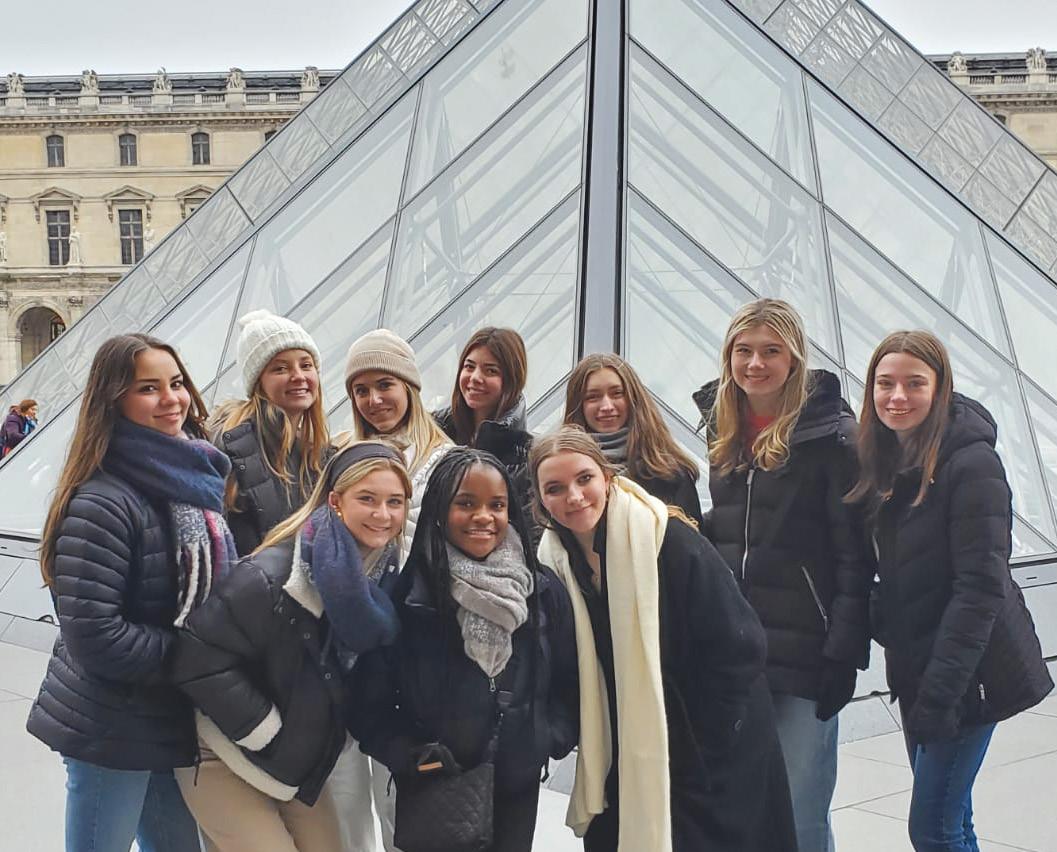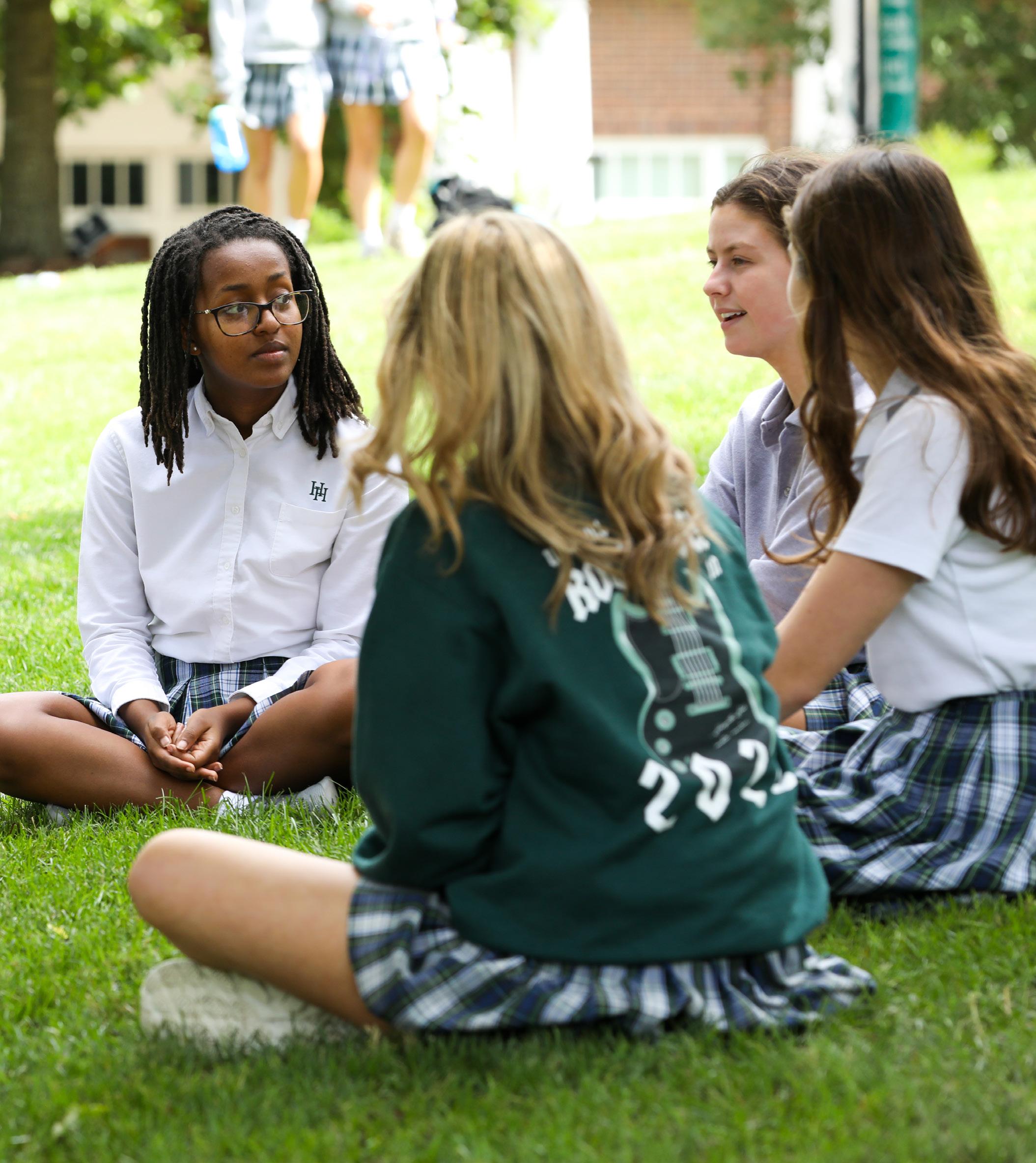

•
•
•




•
•
•

Harpeth Hall is an independent, college-preparatory school for young women where each student realizes her highest intellectual ability in the sciences, the humanities, and the arts and discovers her creative and athletic talents. Harpeth Hall develops responsible citizens who have global perspectives and make meaningful contributions to their communities and the world. With a tradition of excellence and a commitment to lifelong learning, Harpeth Hall educates young women to think critically, to lead confidently, and to live honorably.
Our core purpose is to nurture a sense of wonder, to instill a will and facility for learning, and to promote cultural understanding, environmental stewardship, and service to others. The pursuit of these goals will inspire students and faculty to combine knowledge with goodness and reflection with action.
The Harpeth Hall community — students and faculty — has chosen respect, integrity, individuality, and trust to be our guiding principles. These values reflect our reverence for expressing kindness toward and acceptance of others, our commitment to diversity, forgiveness, and achieving one’s personal best, and our dedication to the service of others.
At Harpeth Hall, we know that to be an excellent school, we must cultivate a diverse, equitable, and inclusive environment in which to teach and learn. We believe in the dignity, power, and potential of every individual. We intentionally affirm each girl’s unique identity. We foster an inclusive environment where students can achieve the highest level of learning and understanding. We take seriously our obligation to cultivate a strong sense of community so that all students, faculty, and families feel a sense of belonging at Harpeth Hall. We are confident that diverse school experiences enrich individuals with deeper understandings of themselves and others. We are wholeheartedly committed to educate girls and young women to think critically, to lead confidently, and to live honorably.
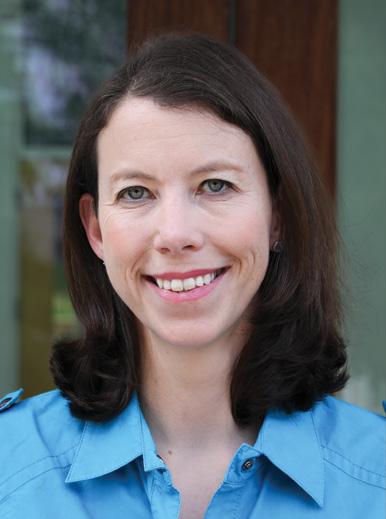
Harpeth Hall’s curriculum aligns directly with our mission: we prioritize coursework designed to help girls think critically, lead confidently, and live honorably. The academic culture in the upper school is characterized by intellectual vitality and joy. We encourage students to take academic risks that equate with their interests and to create a balanced schedule tailored to their individual needs.
At the heart of each academic experience is our deep understanding of how girls learn best. Our teachers provide students with collaborative and interdisciplinary opportunities that ask girls to relate to each other and to the world around them. Our 75-minute blocks and rotating schedule allow for innovative teaching and deep exploration of subject matter. Stop by any classroom, and you will witness the strong connection between teachers and students that informs our vibrant learning community.
With programs such as strength and conditioning, wellness, yoga, and life balance, we make sure our students are developing physically, emotionally, and intellectually. We support our students as they create and engage in our rich co-curricular and extra-curricular offerings. When students select their academic courses, we encourage them to consider their additional time commitments so that they design a schedule that promotes well-being. With our tailor-made “balance app,” we teach our students to lead a balanced life, taking into account how they want to spend their time. Each student meets with her advisor and is counseled by her teachers to choose the best courses for her and develop a flexible four-year academic plan.
The core academic curriculum at Harpeth Hall is supplemented by our signature four-year Winterim program, several international exchange travel options, our Global Scholars program (for students in 10th through 12th grades), and opportunities for STEM research.
In addition, Harpeth Hall’s Bullard Bright IDEA Lab reveals a vibrant space for learning, experimenting, and dreaming. Designed to be a creativity bridge between STEM and the humanities, the Bullard Bright IDEA Lab provides a place for students to transform ideas that incubate in the classroom into real-life innovations and designs. The space features a podcast studio, chemistry kitchen, robotics lab, and more.
No matter who a girl dreams of becoming, we help her to become more fully herself and to forge her own path to success during her four years in the upper school.
Frances Fondren-Bales Director of the Upper SchoolSubject Minimum Requirement for Graduation
ENGLISH
4 years
MATH HISTORY
SCIENCE
3 years (4 years recommended)
3 years
World Cultures
Modern World History
U.S. History
3 years Biology
Chemistry Physics
LANGUAGE
FINE ARTS
6th CLASS-orSTUDY HALL
3 years of the same language
1 year total yearlong class or 2 semester classes
GRADE 9
English I
GRADE 10
GRADE 12 GRADE 11
2 years
4 terms
Maximum: 6 classes per semester plus Wellness
Minimum: 5 classes (at least 4 need to be core classes) per semester plus Wellness; all students need at least 4 semesters of core classes beyond the department requirements for graduation
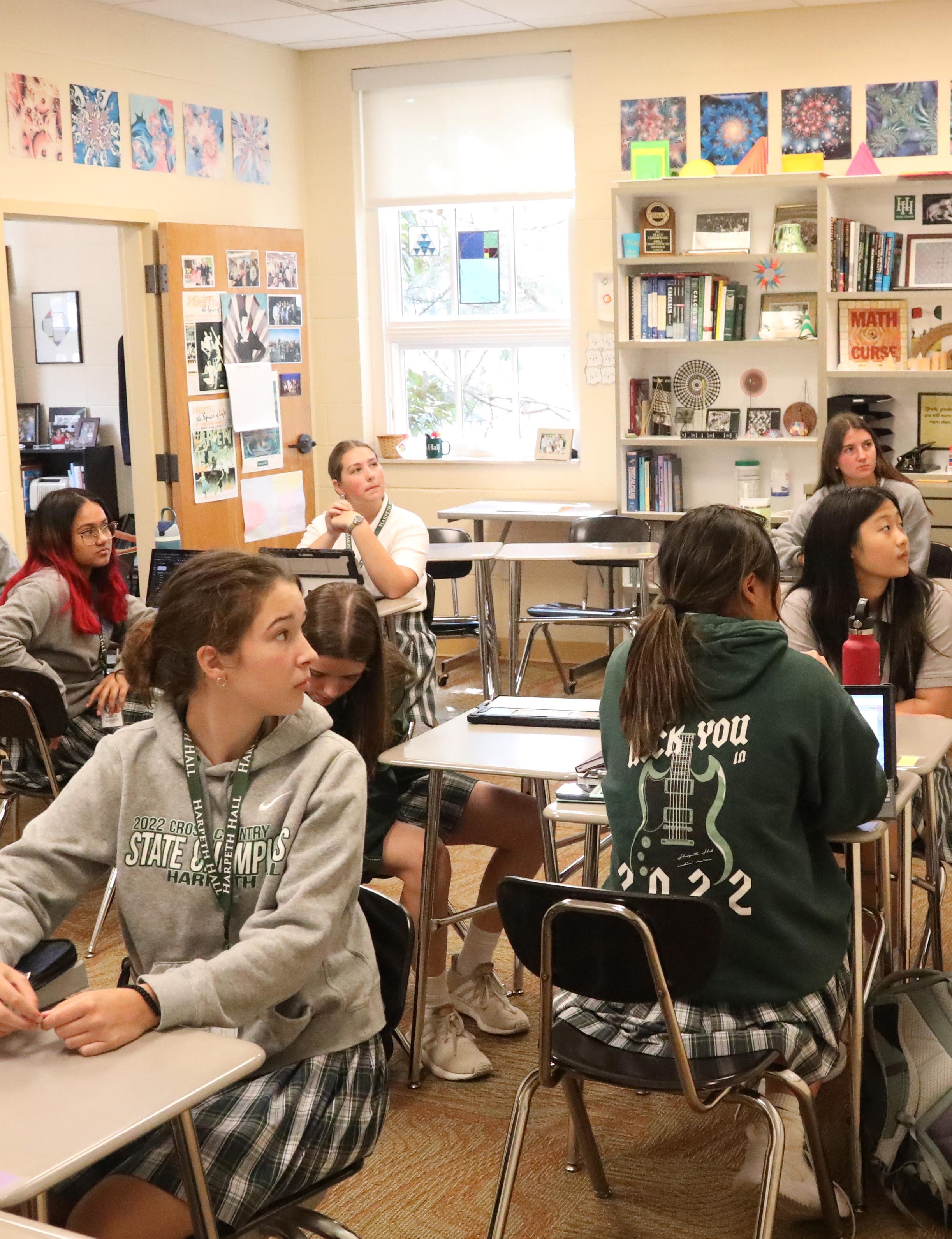
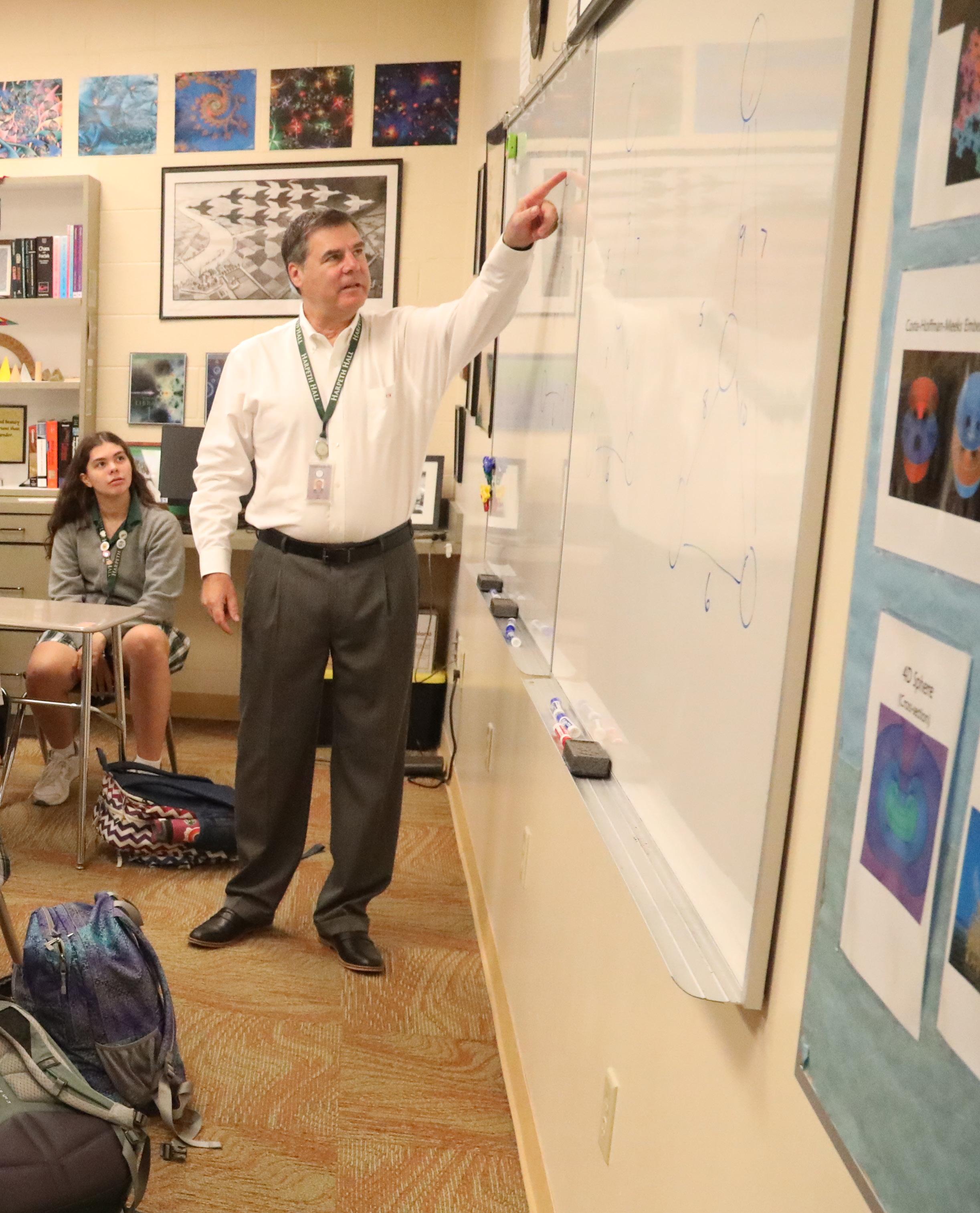
The English curriculum at Harpeth Hall includes an array of literary works that provide opportunities for each student to think deeply about her relationship to the world around her and the complexities of the human experience. In our discussion-based courses, writing, reading, research, grammar, and vocabulary strands are the foundation of our program. With a focus on literary analysis and writing, students hone their ability to think critically and imaginatively while writing with increasing sophistication. English classes in 9th, 10th, and 12th grades cover a variety of genres and periods in American and world literature. The introduction of rhetoric in 11th grade, with a focus on nonfiction, invites students to appreciate the myriad ways that writing is used across academic disciplines and in public discourse. Over the course of four high school years, students engage in project-based learning, collaboration, and independent research. By the end of 12th grade, students will develop a strong repertoire of writing and critical reading skills as well as a demonstrated confidence in their writing voice. In addition to the four required years of English, the department offers a Creative Writing elective course for students interested in developing their skills in this area.
English I
Full year, one credit; Required for 9th grade students
English I explores a multitude of American voices and experiences as a unifying theme and focuses on intensive reading and writing. Students read, critically assess, and discuss a wide variety of literary works in various genres, including novels, plays, and poetry. Major works include Fahrenheit 451, A Raisin in the Sun, When the Emperor Was Divine, and A Midsummer Night’s Dream. As an introduction to analytical composition, the course requires structured responses to literature, research assignments, and personal response journals. Creative writing assignments are included to expand students’ writing experience. Vocabulary and grammar are ongoing studies throughout the year. Students are encouraged to read for pleasure and attend library book talks to expose them to important works of literature as well as contemporary, young-adult choices.
English II
Full year, one credit; Required for 10th grade students (unless enrolled in Honors English II with department approval)
English II explores the literature of the world through an examination of both classical and contemporary works of fiction, nonfiction, drama, and poetry. This discussion-based course focuses on works such as Purple Hibiscus, Oedipus Rex, Night, and Much Ado About Nothing, as well as shorter nonfiction pieces. Sophomores respond to their readings through a variety of critical and personal essays, creative pieces, and reflections. The use of primary and secondary sources enhances student understanding of both the unique yet universal nature of the readings and also sets the stage for more challenging research projects in 11th grade. Students use technology for creative project displays, oral presentations, and class activities. Vocabulary and grammar are ongoing contextual studies throughout the year. Students are encouraged to read for pleasure and attend library book talks to expose them to important works of world literature as well as contemporary, young-adult choices.
Honors English II
Full year, one credit; Open to 10th grade students (requires department approval)
Honors English II introduces students to thought-provoking works by important writers in the Western and World canon, from the Greeks to the present, featuring works such as Siddhartha, Macbeth, Oedipus Rex, and Mrs. Dalloway. Students employ different conceptual lenses to interpret works, with an emphasis on how social expectations and personal psychology hold tremendous sway in human affairs, including matters of ethics and morality. Honors students grapple with complex writing styles, such as Woolf’s stream-of-conscious narrative, the subtleties of Austen’s satire, and the intricacies of existentialism in Camus’s The Stranger. Students write in a variety of modalities, from literary-critical essays and a research argument to personal narratives and original poetry. They also learn to employ concession/refutation techniques of argumentation, both in writing and during Harkness discussions. Students are encouraged to read for pleasure and attend library book talks to expose them to important works of literature as well as contemporary, young-adult choices.
Full year, one credit; Required for 11th grade students (unless enrolled in AP Language and Composition with department approval) English III mirrors the content and concepts of AP English Language and Composition, but it does so at a more moderate pace and covers fewer works. Students are exposed to the concepts of rhetoric and composition, enabling them to write effectively and confidently across the curriculum. The course emphasizes the expository, analytical, and argumentative writing that forms the basis of academic and professional communication. Students read and respond to fiction and nonfiction works of historical and contemporary import, including novels, short stories, speeches, articles, and essays, as well as visual texts such as documentaries and graphics. Key texts include The Norton Reader: An Anthology of Nonfiction, Narrative of the Life of Frederick Douglass, and A Room with a View. Students build their vocabulary and grammar skills by studying words in context and through feedback on essays. Students also complete an independent research paper that helps them learn the steps of any successful inquiry-based project. Students are encouraged to read for pleasure and attend library book talks to expose them to important works of literature as well as contemporary, young-adult choices.
AP English Language and Composition
Full year, one credit; Open to 11th grade students (requires department approval)
AP English Language and Composition is the equivalent of a college English Rhetoric and Composition course that enables students to write effectively and confidently across the curriculum. It emphasizes the expository, analytical, and argumentative writing that forms the basis of academic and professional communication. Students read and respond to nonfiction works of historical and contemporary import, including speeches, documents, articles, and essays, as well as visual texts such as documentaries, charts, and graphics. Key works include Plato’s “Allegory of the Cave,” Mary Shelley’s Frankenstein, and The Narrative of the Life of Frederick Douglass. Students complete an independent research paper that helps them learn the steps of any successful inquiry-based project. Additionally, students choose and respond independently to documentaries and nonfiction books that discuss contemporary issues. Students build their vocabulary and grammar skills by studying words in context and through feedback on essays. Students enrolled in this course are required to take the AP English Language and Composition exam in May. Students are encouraged to read for pleasure and attend library book talks to expose them to important works of literature as well as contemporary, young-adult choices.
Full year, one credit; Required for 12th grade students (unless enrolled in AP English Literature with department approval)
English IV focuses on masterworks in the American literary tradition while investigating the cultural, historical, and philosophical movements that affected this country’s literary development. Readings reflect the ethnic, economic, and racial diversity of the American literary landscape from the Puritans to the Post-Modern. Featured works include Our Missing Hearts, Their Eyes Were Watching God, and A Streetcar Named Desire. Students improve their rhetorical skills by writing expository prose on literary topics. In addition, students have opportunities to read and discuss more sophisticated forms of literary analysis, interpretation, and criticism through literary research and writing. Students engage in two research-based assignments employing literary criticism to support their original interpretations of works. Students build their vocabulary and grammar skills by studying words in context and through feedback on essays. Students are encouraged to read for pleasure and attend library book talks to expose them to important works of literature as well as contemporary, young-adult choices.
Full year, one credit; Open to 12th grade students (requires department approval)
AP English Literature is the equivalent of a college course and requires widespread and in-depth reading and writing and the ability to engage in serious critical analysis. The AP English Literature course moves at a rapid pace with an extensive reading list and requires the close examination of novels, dramas, essays, short stories, and poetry, including works by Toni Morrison, Nathaniel Hawthorne, and Kate Chopin. Students are expected to interpret literature and literary criticism with finesse and analyze literary works through sophisticated composition and purposeful class discussion. Students engage in a research-based assignment employing literary criticism to support their original interpretations of works. Students build their vocabulary and grammar skills by studying words in context and through feedback on essays. Students enrolled in this course are required to take the AP English Literature exam in May. Students are encouraged to read for pleasure and attend library book talks to expose them to important works of literature as well as contemporary, young-adult choices.
One semester, one-half credit; Open to 9th, 10th, 11th, and 12th grade students
This course introduces students to the art and craft of creative writing. Students read, write, and discuss works of literature in various genres, including fiction, poetry, and creative nonfiction. Students build their skills through short daily exercises, crafting some of their writing into longer pieces that will receive feedback through peer editing, writers’ workshops, and teacher response. Readings complement the students’ study of writing. Students will work toward the completion of a portfolio of their finest work. They will also be encouraged to submit their work to the school’s literary magazine, Hallmarks, as well as to national and regional writing competitions.
The math department at Harpeth Hall is committed to delivering an exceptional educational experience that respects each student’s unique abilities, interests, and the foundational skills necessary for success in future mathematical pursuits. Our curriculum challenges students to think critically and apply their knowledge in innovative ways. Students deepen their computational understanding through exploration, risk-taking in problem-solving, and active engagement with peers. We value diverse teaching methods, including group problem-solving, presentations, explicit instruction, and independent practice. A deliberate emphasis on fostering a growth mindset and continuous improvement supports student confidence throughout their upper school journey. Technology is integrated into the curriculum, with the TI-84 graphing calculator as a pivotal tool at all instructional levels. Graduation requires a minimum of three years of upper school mathematics, with a strong recommendation for a fourth year.
Algebra I
Full year, one credit
Algebra I introduces students to the basic structure of algebra and the real number system. Students learn to recognize patterns and build symbolic relationships. Students are introduced to the role of deductive reasoning and the need for precision of language. Mathematical skills and topics in this course include solutions of linear equations and inequalities in one and two variables, graphing of functions, products and factors, fractions and fractional equations, and quadratic equations.
Geometry
Full year, one credit; Prerequisite: Algebra I
Geometry is the study of various plane figures, such as points, lines, angles, triangles, quadrilaterals, and circles, as well as some three-dimensional interrelationships. The course emphasizes proof and deductive reasoning throughout, using a traditional development of geometry as a system of logical thought. Students learn right triangle trigonometry and develop connections between the different geometric figures. Topics from Algebra I are reviewed continuously and applied in a variety of geometric settings.
Honors Geometry
Full year, one credit; Prerequisite: Honors Algebra I and department approval
Honors Geometry is designed for students who desire an enriched and rapidly paced course in Geometry. The content of the course includes all topics covered in Geometry; it also includes geometric constructions and in-depth investigation of the Euler line. Students are challenged with problem sets that require independent exploration and high-level critical thinking. Honors Geometry students are encouraged to take skills learned in class and apply them in new and different ways, promoting a deeper understanding of the subject matter.
Full year, one credit; Prerequisites: Algebra I and Geometry
The second-year algebra course offers students a sound understanding of the structure of the real number system. Within this development, the skills from the first-year algebra course are reviewed, consolidated, and expanded to lay a solid foundation for future work in mathematics. Among the topics considered are linear and quadratic relations and functions, exponential and logarithmic functions, complex numbers, real-world math applications, and an introduction to trigonometric functions.
Honors Algebra II
Full year, one credit; Prerequisites: Algebra I, Honors Geometry, and department approval
Honors Algebra II is a specialized algebraic curriculum for students seeking a more advanced and swiftly progressing second year of algebra. Beyond the content covered in Algebra II, this course delves into conic sections and a deeper exploration of trigonometry, including applications of all six trig functions. In Honors Algebra II, students regularly establish connections with other STEM disciplines, fostering a holistic understanding of mathematics. Students are encouraged to take the skills learned in class and apply them beyond in-class examples, promoting a deeper and more practical understanding of the subject matter. Students are challenged with problem sets that require independent exploration and high-level critical thinking.
Full year, one credit; Prerequisite: Honors Algebra II and department approval
This course reinforces, enhances, and refines the mathematical skills, thinking, and practices developed in Algebra II, while adding new problem-solving strategies and concepts. College Algebra and Trigonometry primarily focuses on evaluating, graphing, analyzing, and applying the properties of various functions, including polynomial, rational, exponential, logarithmic, and trigonometric functions. Additional problem-solving concepts include more advanced pattern recognition through sequences and series, as well as conic sections. College Algebra and Trigonometry is designed to prepare students for a course in statistics or possibly calculus.
Precalculus
Full year, one credit; Prerequisite: Algebra II or Honors Algebra II
In Precalculus, students extend and deepen mathematical concepts introduced the prior year. Functions form the foundation of the course and include polynomial, rational, periodic, exponential, and logarithmic. Trigonometry is a significant focus. Additional topics include analytic geometry with vectors, matrix algebra, probability and counting, and sequences and series. Concepts are extended through modeling real-world problems. Students use graphing calculators, and other technology is incorporated. This course prepares a student for Calculus (AP AB or standard Calculus).
Honors Precalculus
Full year, one credit; Prerequisite: Honors Algebra II and department approval
The Honors Precalculus course is designed for students who desire an enriched and rapidly paced course to prepare for AP Calculus (AB or BC). This course delves deeper into content covered in regular Precalculus and includes Calculus concepts. Students make connections with physics and engineering, cultivating a comprehensive grasp of the interconnected disciplines. Additionally, students are encouraged to extend the skills acquired in class to new challenges, fostering a more profound and applicable understanding of the subject. The coursework presents challenges through problem sets that demand independent exploration and advanced critical thinking.
Statistics
Full year, one credit; Prerequisite: Algebra II and department approval
Statistics is the science and art of collecting, analyzing, and drawing conclusions from data. In this course, students analyze and model one- and two-variable data, learn how to collect useful data, learn the basics of probability, and learn how to estimate a parameter. In all examples, real-world data is used. The course emphasizes understanding statistical concepts, not memorizing lots of formulas. Students use the TI-84 graphing calculator extensively, as well as online applets. Hands-on projects provide opportunities for experiential learning.
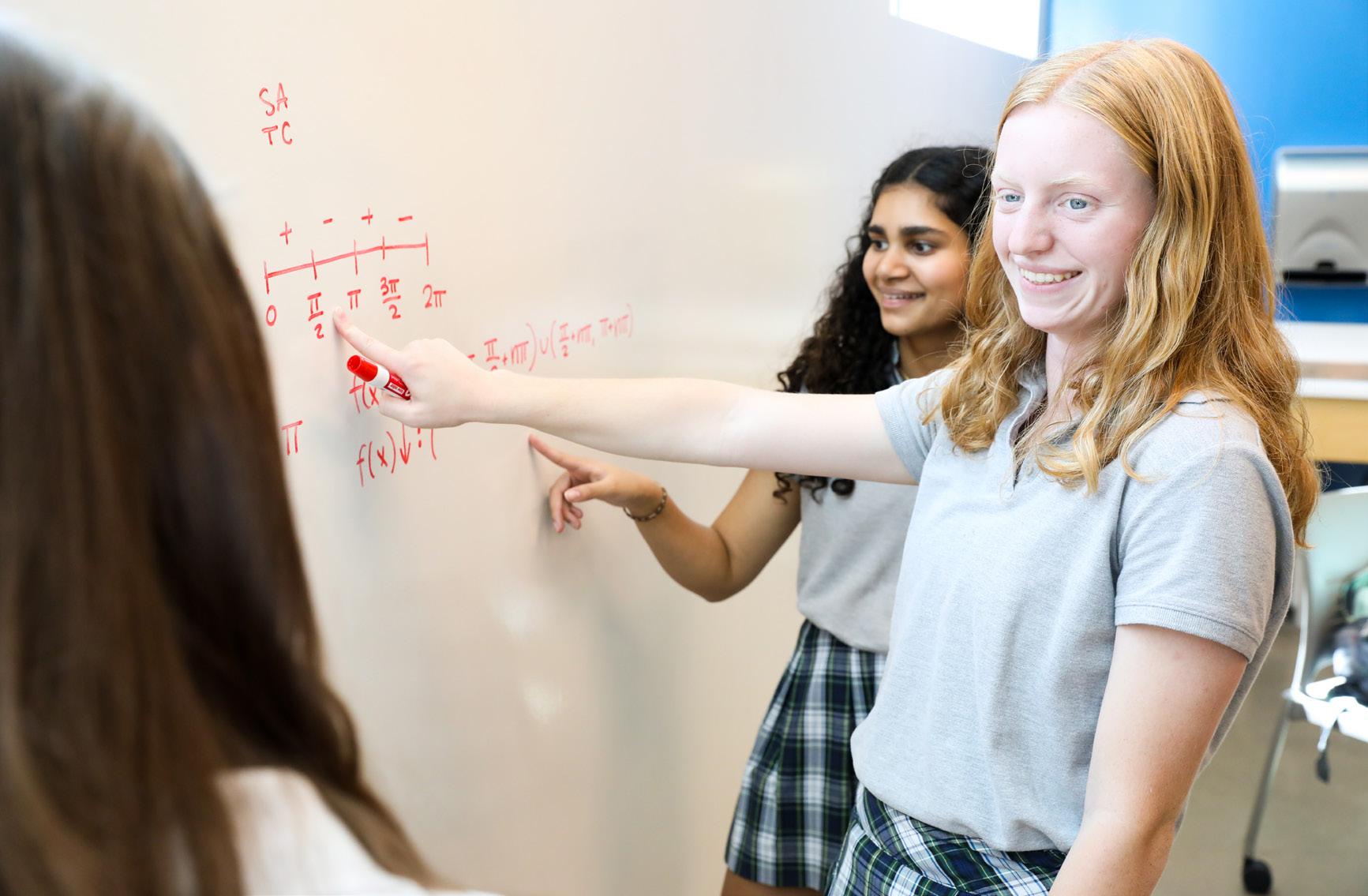
AP Statistics
Full year, one credit; Prerequisite: Algebra II or Honors Algebra II and department approval
This course is equivalent to the one-semester introductory statistics course offered by most colleges and required for many majors, including psychology, sociology, health sciences, and business. The fall semester focuses on descriptive statistics, data collection, probability, and simulation; the second half of the course focuses on inferential statistics and linear regression. Statistical reasoning and clear communication of process and results are emphasized throughout. Students enrolled in this course are required to take the AP Statistics exam in May.
Calculus
Full year, one credit; Prerequisite: Precalculus and department approval
Calculus covers all the material in a typical first-semester college calculus course, including limits, derivatives and their applications, integrals and their applications, and transcendental functions. Students also learn how to use the TI-84 Plus CE graphing calculator to evaluate calculus-related problems. The primary goal of this course is to learn high-level mathematics in a stress-free environment. Because the class does not have to follow the AP Calculus AB curriculum, students set the pace of the class, and there is flexibility in terms of topics covered.
AP Calculus AB
Full year, one credit; Prerequisite: Precalculus or Honors Precalculus and department approval
AP Calculus AB is a challenging and rewarding course designed to provide students with a deep understanding of fundamental concepts in differential and integral calculus. This course is equivalent to a first-semester college calculus course. Throughout the year, students delve into topics such as limits, derivatives, integrals, and their applications. Emphasis is placed on developing strong problem-solving skills, critical thinking, and a conceptual understanding of mathematical principles. Students engage in a variety of activities, including collaborative problem-solving. Upon completion, students are well-prepared for the AP exam and equipped with a strong calculus foundation for future STEM studies. Students enrolled in this course are required to take the AP Calculus AB exam in May.
Full year, one credit; Prerequisite: Honors Precalculus and department approval
AP Calculus BC offers an in-depth exploration of advanced calculus concepts designed for students seeking a deeper understanding of differential and integral calculus. This course, equivalent to a full-year college calculus sequence, builds upon the topics covered in AP Calculus AB and extends into additional advanced calculus content. Throughout the year, students delve into a comprehensive study of limits, derivatives, integrals, and their applications. Special emphasis is placed on techniques of integration, parametric equations, polar coordinates, sequences, and series. This course aims to equip students with the analytical skills and mathematical reasoning necessary for success in college-level calculus. Students enrolled in this course are required to take the AP Calculus BC exam in May.
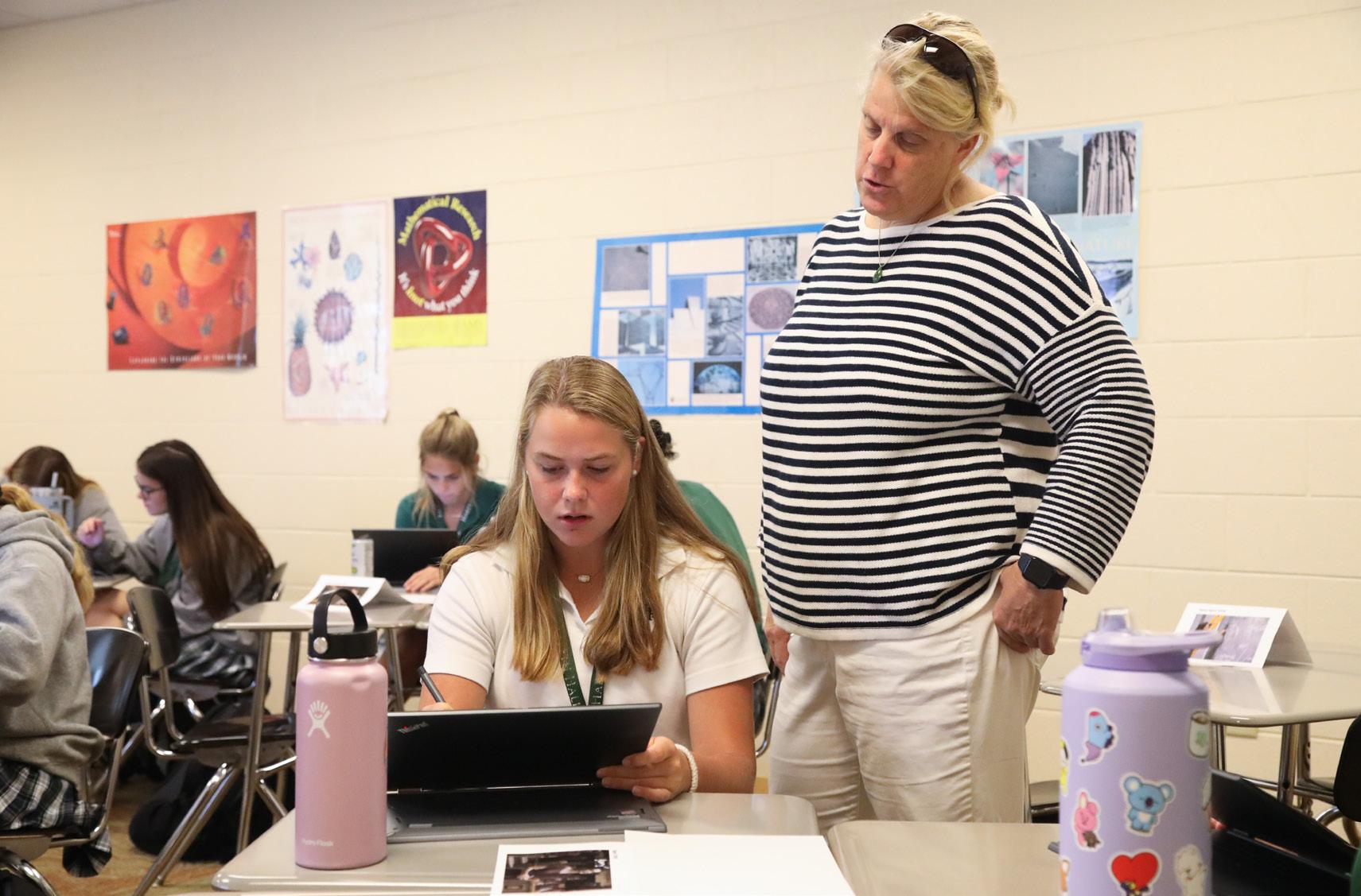
Science is, at the same time, a body of information and a way of looking at the world. Graduates of Harpeth Hall must possess both an understanding of scientific processes and the analytical abilities necessary to utilize these concepts. Our students are well prepared for the next level in science, whether future endeavors include a concentration in scientific areas or extensive scientific literacy in an ever-increasing science- and technology-based world. In life science, chemistry, and physics courses, students learn to interpret facts about our world in terms of basic principles. Laboratory experiments are an integral part of the curriculum, reflecting and reinforcing classroom experiences as students develop the process of scientific thinking. There is a great deal of flexibility within the science curriculum for girls to lean into areas of challenge that make sense for their strengths. All Harpeth Hall students are required to take one course in each discipline: biology, chemistry, and physics. Most students elect to take science classes beyond these basic requirements.
Biology
Full year, laboratory, one credit; Required for 9th grade students
Biology provides students with an introduction to the study of life. During the first semester, students investigate biochemistry, cell structure, cell function, and molecular biology. In the second semester, the class covers genetics, evolution, and the diversity of life, with a focus on human systems. The course emphasizes hands-on learning through extensive lab experiments. Biology provides students with a solid content-filled background, enabling them to make sense of their surroundings and providing them with skills necessary for upper-level science classes and beyond.
Honors Biology
Full year, laboratory, one credit; Department approval required
Honors Biology is an introduction to the natural world designed to dive deeper into topics with an accelerated pace. This survey course emphasizes learning through critical thinking and reasoning and covers biochemistry, cell biology, cellular energetics, evolution, genetics, biomedical engineering, and human biology. Students study the micro- and macro-level aspects of biology. Lecture material is supplemented with a variety of laboratory experiments and techniques.
Conceptual Physics
Full year, laboratory, one credit; Prerequisites: Biology, Algebra I, and department approval
Conceptual Physics is a general survey course of classical physics. Students cultivate their understanding of physics and scientific practices as they explore the following topics: kinematics, dynamics, momentum, energy, electric charge, electric force, and simple direct current circuits. Students engage in scientific inquiry, investigations, and laboratory activities to develop a conceptual understanding of physical laws while also developing sound scientific skills, including measurement, data analysis, scientific notation, and the development of mathematical models that represent physical systems. Students will be challenged to apply their knowledge of physics and use critical thinking to solve problems. Required math skills are at most Algebra I level. Conceptual Physics takes the place of Physics.
Chemistry
Full year, laboratory, one credit; Prerequisites: Biology and Geometry, Co-requisite: Algebra II
Chemistry is a survey course that introduces students to the world on an atomic level. This course is an introduction to inorganic chemistry. Topics include stoichiometry, atomic structure, the behavior of gases, solutions, acids and bases, and chemical bonding. Mathematical analysis and laboratory experiences reinforce the material presented in class.
Honors Chemistry
Full year, laboratory, one credit; Prerequisites: Biology, Geometry, and department approval
Co-requisite: Algebra II or Honors Algebra II
Honors Chemistry is a survey course that introduces advanced science students to the world of chemistry. Students learn all the fundamental chemical principles and theories while being challenged by special topics such as nanotechnology and outside reading in scientific journals. Honors Chemistry enables students to delve more deeply into specific topics while employing critical reading and writing skills. Topics covered include atomic theory, chemical reactions and equilibrium, stoichiometry, electronic structure, thermochemistry, and organic chemistry. Extensive laboratory experiences are integral to the course.
Full year, laboratory, one credit; Prerequisites: Biology and Chemistry; Co-requisite: Precalculus or Honors Precalculus or AP Statistics Physics is a general course in matter and energy focused on mechanics, electricity, and magnetism. Students participate in hands-on activities, including experiments, demonstrations, shared experiences, problem-solving, and computational work. Students learn to use mathematical equations and graphs to model real-world motion and interactions. Students who take Conceptual Physics will not take this physics course.
Full year, one credit; Open to 11th and 12th grade students
This class offers the essential principles of human anatomy and physiology beyond those studied in biology. These include studies of the 11 body systems at the molecular, cellular, and macroscopic levels. Lectures, group activities, and laboratory exercises complement and support the overall concept of the human body as a structural and functional unit. In addition, students explore how each system works to help the body maintain homeostasis. This course also covers the anatomical and physiological implications when systems fail.
Full year, laboratory, one credit; Open to 11th and 12th grade students; Application required
The Honors STEM Research course formalizes the structures for students to do independent research over the course of an academic year and receive credit for that work. Students are placed in research settings, including university laboratories or local corporations, based on their interests and laboratory availability. Project work begins in early September and ends in May. The course requires, on average, seven to eight hours of project-based work per week. Students are encouraged to present their scientific findings at regional science and engineering fairs in the spring, and all students submit a formal scientific manuscript in May.
Note: Please indicate a second choice when you sign up for this course. Vanderbilt University may require a COVID vaccine. Registration paperwork must be completed during the summer for all Vanderbilt laboratory placements.
Full year, laboratory, one credit; Prerequisites: Biology, Chemistry, Algebra II, and department approval
AP Biology is a college-level general biology course. Students study current biological research and supplement the text with readings from scientific journals and visits from speakers in the field. Several advanced laboratory projects are included in the course. Students enrolled in this course are required to take the AP Biology exam in May.
Full year, laboratory, one credit; Prerequisites: Biology, Chemistry, Algebra II, and department approval
AP Chemistry uses general principles in chemistry college texts and includes extensive lab work. Topics covered include solution chemistry, equilibrium, ionic reactions, acid-base theory, thermochemistry, organic chemistry, chemical bonding theories, and quantum theory. Students enrolled in this course are required to take the AP Chemistry exam in May.
Full year, one credit; Open to 11th and 12th grade students
AP Environmental Science explores interrelationships in the natural world (ecology) and analyzes environmental problems utilizing extensive laboratory and fieldwork. In this class, students study environmental concepts and processes, analyze data and visual representations, apply quantitative methods in solving problems, propose solutions for environmental issues, and support hypotheses with evidence. Students perform their own studies and analyze other available data sets. This class is for students who want to take their knowledge of the natural world to the next level. Students enrolled in this course will be required to take the AP Environmental Science exam in the spring.
Full year, laboratory, one credit; Prerequisites: Biology, Chemistry, Algebra II, and department approval; Co-requisite: Precalculus (unless already completed)
AP Physics I fulfills Harpeth Hall’s physics requirement and is equivalent to a first-semester college course in algebra-based physics. The course covers Newtonian mechanics (including rotational dynamics and angular momentum), work, energy, and power. Students build skills related to conceptual reasoning and investigations as they seek to understand relationships in the natural world. Students enrolled in this course are required to take the AP Physics I exam in May.
Full year, laboratory, one credit; Prerequisites: Biology and Chemistry; Co-Requisite or Prerequisite: AP BC Calculus
AP Physics C is a calculus-based physics course that explores concepts in mechanics, electricity, and magnetism through mathematical reasoning. The first semester examines kinematics, Newton’s laws of motion, energy, momentum, rotation, oscillations, and gravitation. The second semester explores electrostatics, capacitors, conductors, circuits, magnetic fields, and electromagnetism. Students complete hands-on laboratory work and in-class activities to investigate phenomena and use calculus to solve problems. This class fulfills Harpeth Hall’s physics requirement and is equivalent to two semesters of calculus-based college physics. Students enrolled in this course are required to take the AP Physics Mechanics exam in the spring.
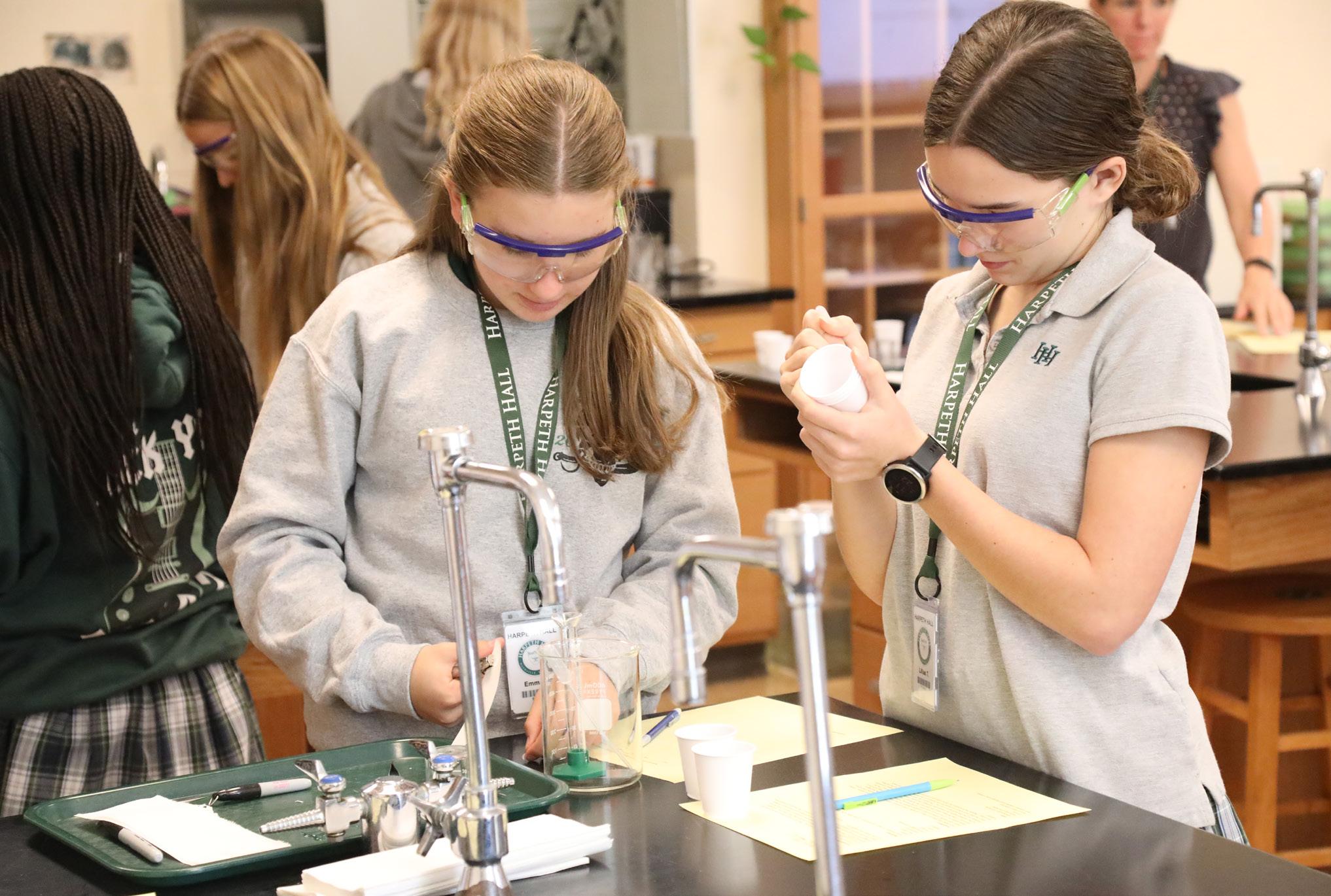

The upper school provides students opportunities to engage with technology through curricular offerings in the mathematics, arts, and science departments, extracurricular activities, and a variety of elective courses. The technology and engineering offerings described in this section offer students many lenses through which they can explore STEAM disciplines. All of these courses count as elective credits.
One semester, one-half credit; Open to 9th, 10th, 11th, and 12th grade students
In this course, students develop critical thinking and problem-solving skills by exploring computer programming. Beginning with TI calculators and progressing to Python, students learn the fundamentals of computer science, including variables, logic statements, functions, and loops. Digital literacy is also emphasized, including file systems, career options in computational fields, and the ethical and unethical use of technology in today’s world. A natural progression from this course is a semester of Web Design and Visual Coding and/or a semester of Game Design and Coding. Juniors and seniors who succeed in the class are well-positioned for AP Computer Science A.
One semester, one-half credit; Open to 9th, 10th, 11th, and 12th grade students
(Also included in the performing arts curriculum)
This course introduces students to the technical aspects of theatre. Areas of focus include scenic and theatrical design, lighting design and implementation, and basic audio systems. Students acquire the fundamental knowledge and practice the necessary skills to perform hands-on support for Harpeth Hall performing arts productions, including concerts, dance, and theatre. This course introduces theatre production spaces, shop tools, construction materials, special effects, and the overall management of theatrical production and stage equipment. Students participate in a backstage field-trip component each semester, which provides an opportunity to observe professional backstage operations, artistic choices, and technical elements, as well as offers exposure to professional career paths in the technical theatre and production fields.
One semester, one-half credit; Open to 9th, 10th, 11th, and 12th grade students
In this course, students begin their study of engineering through a project-based curriculum designed to introduce the engineering profession. Students study different disciplines in engineering, the design process, and the tools of the trade. Students also hone their skills in creative processes, including technical problem-solving, engineering design, ethics, teamwork, and communication. Students use team dynamics to solve engaging and socially relevant design challenges where they work creatively to apply STEM concepts.
One semester, one-half credit; Open to 11th, and 12th grade students;
Prerequisite: AP Computer Science A, or department approval
This course is for students possessing substantial coding proficiency. The project-oriented course allows participants to choose a topic of interest and develop a corresponding plan of study. Regardless of their individual project, all students learn the Python programming language and use coding skills to analyze data. The course serves as an introduction to independent research and high-level data analysis.
Full year, one credit; Open to 10th, 11th, and 12th grade students;
Prerequisite: Introduction to Computer Science, enrollment in an honors math course, or department approval
This course follows the Advanced Placement course description for Computer Science A and is roughly equivalent to a one-semester college programming course. The course emphasizes object-oriented programming methodology focusing on problem-solving and algorithm development. It also includes the study of data structures and abstraction. Because the AP exam tests the use of the Java programming language, this course is taught using Java. Students enrolled in this course are required to take the AP Computer Science A exam in May.
The upper school history and social sciences curriculum is based on the belief that Harpeth Hall students need a basic understanding of how humanity has tried to establish a stable government, economic well-being, and social justice. All students are required to take three years of history: World Cultures (9th), Modern World History (10th), and United States History (11th). A variety of one-semester and full-year electives are also offered for 10th through 12th grades. Teachers expect students to master reading, writing, and research skills appropriate for their intellectual development. Students learn to approach the material as historians and social scientists and hone their ability to think and read with a critical eye.
Full year, one credit; Required for 9th grade students
This required course is a survey of world history and culture from early humans to 1600. The course explores such issues as the rise and fall of empires, how the core values of a culture affect the political and economic decisions made by governments, the interactions between different peoples, and the question of diversity versus exclusivity. The primary objective of this study is to help students gain a firmer grasp of how history affects our world today. As the entry-level course in upper school social sciences, the focus is on developing reading, writing, test-taking, and research skills that will help each student succeed in more advanced classes and on standardized tests in the future.
Full year, one credit; Required for 10th grade students who do not take AP World History
This course aims to expand and deepen the student’s knowledge of history by examining world events from about 1600 to the present day. While exploring the reasons behind Western expansion and dominance, this course also seeks to develop a more sophisticated understanding of the complex relationship between the West and the rest of the world. This course prepares students for more advanced history classes by providing a solid introduction to modern political systems, economics, and religions around the globe. The final weeks of the year focus on recent history and current events to demonstrate how an understanding of history enhances our perception of today’s world. Finally, this material serves as a backdrop for developing such valuable skills as reading for content, taking exams of all types, writing clear and concise essays, thinking critically, and expressing informed, independent opinions.
Full year, one credit; Open to 10th grade students; this college-level class may be taken instead of Modern World History
In AP World History, students engage in the history of the world from 1200 to today. In the first quarter, students re-examine the major historical events and themes of World Cultures, and throughout the rest of the year, students delve into the decades from 1600 to the present. This is a demanding course that is highly collaborative and reading-intensive. Students are asked to grapple with primary sources and write analytical essays in each unit. AP students are required to do significantly more reading and writing than those in Modern World History. Students enrolled in this course are required to take the AP World History: Modern exam in May.
Full year, one credit; Required for 11th grade students who do not take AP U.S. History
This course is a survey of the history of the United States from the first settlement at Jamestown to the turn of the new millennium. The study of United States history is essential in developing citizens who understand contemporary issues with depth and wisdom drawn from the experiences of the past. This course familiarizes students with significant ideas, people, and events related to our national historical narrative and America’s role in the world. Students analyze documents, write essays, debate and discuss, conduct academic research, present projects, and apply historical patterns to present-day issues. The ultimate purpose of the course is to provide students with an understanding of the people and forces that have shaped modern American society, as well as to develop reading, writing, and speaking skills.

Full year, one credit; Open to 11th grade students; this college-level class may be taken instead of United States History
In AP U.S. History, students investigate significant events, individuals, developments, and processes in nine historical periods from 1491 to the present. Students develop and use the same skills, practices, and methods employed by historians: analyzing primary and secondary sources; making historical comparisons; utilizing reasoning about contextualization, causation, continuity, and change over time; and developing historical arguments. The course centers around seven themes: American and national identity; migration and settlement; politics and power; work, exchange, and technology; America in the world; geography and environment; and culture and society. AP students are required to do significantly more reading and writing than those in United States History. Students enrolled in this course are required to take the AP U.S. History exam in May.
Full year, one credit; Open to 12th grade students
In AP European History, students investigate significant events, individuals, developments, and processes in four historical periods from approximately 1450 to the present. The course also provides six themes that students explore throughout the course to make connections among historical developments in different times and places: interaction of Europe and the world; poverty and prosperity; objective knowledge and subjective visions; states and other institutions of power; individual and society; and national and European identity. This requires students to master a body of material. It also entails the development of specific skills, particularly the ability to read critically. Students enrolled in this course are required to take the AP European History exam in May.
One semester, one-half credit; Open to 11th and 12th grade students
This college-level class gives students an analytical perspective on government and politics in the United States. Students become familiar with the various institutions, groups, beliefs, and ideas that constitute U.S. government and politics. Students completing this course are able to describe and compare important facts, concepts, and theories pertaining to U.S. government and politics; explain typical patterns of political processes and behavior and their consequences; interpret basic data relevant to U.S. government and politics (including data presented in charts, tables, and other formats); critically analyze relevant theories and concepts, apply them appropriately, and develop their connections across the curriculum. Students enrolled in this course are required to take the AP U.S. Government and Politics exam in May.
Democracy and Leadership
One semester, one-half credit; Open to 10th, 11th, and 12th grade students
Democracy and Leadership provides an opportunity for students to learn about the role of citizenship, the importance of civic engagement, and the foundations and mechanisms of government at the local, state, and federal levels. The curriculum explores the relationship between government and other institutions such as nonprofits, schools, and the media. The class provides opportunities through projects, field trips, and other alternative assessments to engage with the community and cultivate leadership skills. Students should leave the course with a concrete understanding of how our democratic government functions at all levels and a sense of empowerment to act within those systems.
Economics
One semester, one-half credit; Open to 11th and 12th grade students
Basic economic theory is the foundation of this course as students learn how fundamental economic principles shape decisions and outcomes in fiscal policy, business, and personal finance. This course includes an introduction to theoretical economics and focuses on fundamental concepts and selected topics in macro and microeconomics. Students also study and evaluate major economic systems in the world. This class is for students who wish to attain a degree of general economic literacy and a better understanding of personal financial issues that will help them make better decisions as adults. Students engage in several financial literacy simulations, and class discussion frequently focuses on current economic news stories and events. The course is project-based, with several required group projects and one final individual presentation on an economic issue/topic selected by each student.
One semester, one-half credit; Open to 10th, 11th, and 12th grade students
Psychology is the scientific study of human behavior. The material covered in this course is similar to that covered in an introductory college-level course but aimed at high school students. Topics include: methods, human development, learning and personality theories, behavior disorders, sleep and dreams, motivation, emotions, and the formation of attitudes and beliefs. Students consider the contributions of Sigmund Freud, B.F. Skinner, Jean Piaget, Ivan Pavlov, Stanley Milgram, Abraham Maslow, and others. This is a discussion-based class with an emphasis placed on each student’s participation.
One semester, one-half credit; Open to 10th, 11th, and 12th grade students
This course looks at the basic teachings of several of the world’s great religions. The primary focus is on Hinduism, Buddhism, and Islam, but many other spiritual traditions, such as Taoism, Confucianism, Sikhism, and Baha’i also be studied. Emphasis is placed upon the role these faiths now play in our world, including their impact on the political, social, and spiritual lives of billions of human beings today. The goal is to broaden the student’s awareness of other people’s religious traditions and deepen her appreciation of her own.
Full year, one credit; Open to 11th and 12th grade students
(students in 10th grade may take the course with approval by the teacher and the director of the upper school )
The AP Art History course is a survey of global art from prehistory to the present. This college-level course teaches students to understand works of art through contextual and visual analysis. The class moves at a quick pace as students view works of art within their historical context by examining issues such as politics, religion, patronage, gender, function, and ethnicity. This rigorous class requires in-depth nightly readings and a serious commitment to one’s learning. Museum visits are incorporated into the curriculum. Students gain a broad yet thorough understanding and appreciation of art through history, as well as history through art. Students enrolled in this course take the AP Art History exam in May.
Harpeth Hall believes that the study of language plays an integral role in a college-preparatory, liberal arts education. Students are encouraged to study a second language and achieve the highest possible level of linguistic and cultural proficiency. Harpeth Hall offers studies in Latin, Chinese, French, and Spanish. The world language program emphasizes a balanced approach to the cornerstones of language proficiency: reading, writing, speaking, and listening to a world language while gaining insight into the culture in which it is (or was) spoken. By studying another language, the student acquires the measurable, practical skills that accompany world language proficiency, as well as an appreciation for another culture and a greater understanding of her world. To meet Harpeth Hall’s graduation requirement, each student must complete three years of one language in the upper school. The department strongly urges students to pursue language study through the 12th grade to achieve the highest level of placement and success at the university level.
Chinese I (Mandarin)
Full year, one credit
This course is designed for students new to the study of Mandarin Chinese. Students learn Pinyin (the Chinese phonetic system) and Chinese characters (the Chinese reading and writing system) while practicing speaking and listening skills. Chinese typing skills are also practiced and mastered at this level. By the end of the course, students know how to communicate, read, and write about topics such as greetings, family, dates and time, hobbies, and visiting friends. Based on the nature of Chinese, a non-phonetic language, and the complexity of character writing, building a strong foundation in all language skills is the most important goal for this course. Students also explore Chinese culture to expand their knowledge and awareness of the complexity of China’s past and present.
Chinese II (Mandarin)
Full year, one credit; Prerequisite: Chinese I
In Chinese II, students build and expand upon what they learned in Chinese I, using Chinese in the classroom to increase confidence in listening, speaking, and reading in the language. Students work in groups and individually to further their linguistic skills in vocabulary and grammar acquisition as well as deepen their cultural base. Listening and reading selections increase understanding and appreciation of the language and culture. Students explore the authentic language through conversations, cooperative learning, and forms of written expression that encourage cross-cultural comparison and cultural literacy. Upon completion of Chinese II, students are able to communicate more effectively and with greater depth about an array of topics from a global perspective.
Honors Chinese III (Mandarin)
Full year, one credit; Prerequisite: Chinese II
Honors Chinese III focuses on advancing the skills of listening, reading, writing, and speaking while furthering the understanding of Chinese culture. Students explore the language and culture thematically with authentic materials to promote communication and cross-cultural understanding. Students deepen all facets of expression by incorporating idiomatic expressions and additional complex structures.
Honors Chinese IV (Mandarin)
Full year, one credit; Prerequisite: Honors Chinese III
Honors Chinese IV continues to develop and reinforce the audio-lingual skills essential to communicating in the language and deepening cultural understanding. The primary focus is on teaching students to think critically about cultural products, practices, and perspectives, as well as how to express themselves coherently in spoken and written Chinese.

Full year, one credit; Prerequisite: Honors Chinese IV
This course is designed to prepare students for the AP Chinese Language and Culture exam. The tasks and themes of the course are closely based on the College Board. Effective language learning strategies such as self-correcting, self-assessing, guessing, predicting, and generalizing are practiced and emphasized throughout the course. Students practice interpersonal and interpretive communication skills through intensive listening, reading, writing, and speaking. This course moves from contextualized pattern drills to open-ended communicative tasks to prepare the learners for real-life challenges. Students also explore culture and events in contemporary and historical settings, focusing on the primary cultural themes designated by the College Board. Students enrolled in this course are required to take the AP Chinese Language and Culture exam in May.
Full year, one credit
French I is an introductory course for students new to the language. Students work toward a novice level of proficiency through a focus on the four skills required for learning a language: listening, speaking, reading, and writing. In this course, students learn the basic structures of the French language, including central verbs and verb tenses, article and preposition usage, various categories of adjectives and pronouns, and thematic vocabulary. Important aspects of diverse Francophone cultures are introduced as well. Students practice spoken French by using the target language in the classroom. Short readings enhance students’ comprehension skills, and audio and videos in French help students develop their listening skills. The class is taught primarily in French.
Full year, one credit; Prerequisite: French I or equivalent
French II offers a thorough review of material presented in French I while also introducing new grammatical structures (the comparative and superlative, object pronouns, reflexive verbs), verb tenses (passé composé, imparfait, conditionnel), and thematic vocabulary (housing, gastronomy, health and wellbeing, technology). Class is conducted primarily in French, giving students the opportunity to practice listening, speaking, and reading in the target language on a daily basis. Cultural readings allow students to improve pronunciation, reading fluency, and conversation as they simultaneously gain an understanding of and appreciation for Francophone communities and their ways of life. Audio files, videos, and dialogues reinforce students’ oral/aural abilities, and project-based learning is emphasized. Upon completion of level II, French students will be able to communicate more confidently and effectively in a variety of tenses and with greater depth at the paragraph level on a breadth of topics from a global perspective.
Full year, one credit; Prerequisite: French II
French III continues to focus on mastery of the four skills required for becoming proficient in a language: listening, speaking, reading, and writing. This course takes a thematic approach that allows students to engage with various Francophone cultures through authentic materials while refining their grammar and communication skills. Themes examined are relationships, urban dwelling, the media, justice, societal evolution, family, and the environment. Collaboration on learning-based projects and creating with the language are equally central to the course. Students review and expand their use of irregular and reflexive verbs, past tenses, adjectives, adverbs, and negation. Students also learn the future simple, conditional, and past conditional tenses as well as the subjunctive mood.
Full year, one credit; Prerequisite: French II and department approval
Honors French III furthers students’ skills in interpretive listening, writing, speaking, and interpersonal communication through authentic resources that reflect a variety of Francophone countries. Students explore various aspects of Francophone cultures and learn to draw parallels and distinctions between those cultures and their own. The primary focus is on teaching students how to think critically about these themes in the target language and how to express themselves coherently in written and spoken French. Students deepen their understanding of verb tenses and hone their grammatical skills by exploring the themes of personal identity and relationships as well as urban/rural living, types of media, global politics, societal/familial evolution, and environmental issues. Students work on differentiating between the past tenses and learn the past perfect, future, conditional, and past conditional tenses and subjunctive mood.
French IV
Full year, one credit; Prerequisite: French III
French IV gives students the chance to explore global themes (personal relationships, media and technology, family, travel and transportation, society and traditions, and nature and the environment) that impact Francophone countries while also learning about the culture and literature of some of those countries. In their quest for proficiency, students engage in communicative activities that allow them to create with the language. They also review essential grammar structures such as differentiating between the past tenses and using the simple and past future and conditional and past conditional tenses. Students review and further study the three types of hypotheticals and the indicative and subjunctive moods to more effectively communicate in the target language.
Honors French IV
Full year, one credit; Prerequisite: French III and department approval
Honors French IV explores various themes, including education, friendship, daily life, family and community, global issues, and work and travel through authentic resources that reflect a variety of Francophone cultures. In this course, students complete tasks and engage in project-based learning targeting their proficiency in reading, writing, speaking, and listening to refine the skills needed for AP French. The primary focus is on creating with the language at a high level and analyzing and interpreting texts, audio, and videos in French. Students in this course deepen their grammar competencies by reviewing the indicative (present, past, perfect past, imperfect, simple and past future, conditional and past conditional tenses, and the three types of hypotheticals) and the subjunctive mood. Students also further their knowledge of idiomatic expressions. This course is conducted exclusively in French.
Full year, one credit; Prerequisite: French IV
French V is a film and conversation course designed for students who wish to continue to develop their proficiency in French. Students explore numerous cultural topics through various films and related projects. Discussions in the target language provide opportunities for students to improve oral proficiency and are central to this course. Additionally, written proficiency is enhanced through the production of movie reviews and essays, while aural proficiency is strengthened through both films and class discussion.
Full year, one credit; Prerequisite: Honors French IV and department approval
AP French prepares students for advanced college French courses by emphasizing the four skills of language learning: listening, speaking, reading, and writing. Students refine their reading skills through authentic literary and cultural texts. Francophone music, films, audio, and video clips are used to sharpen listening skills. This course allows students to hone their formal and informal spoken French through daily discussions, presentations, recorded conversations, and cultural comparisons. Formal and informal writing are improved through essays, narratives, and emails conforming to specific AP guidelines. In preparation for the AP exam, students explore culture and events in both contemporary and historical settings, focusing on six primary cultural themes: global challenges, science and technology, contemporary life, personal and public identities, families and communities, and beauty and esthetics. Students considering this course should have a strong foundation in present (indicative, conditional, and subjunctive) as well as past and future tenses of the indicative. This course is conducted exclusively in French. Students enrolled in this course are required to take the AP French Language exam in May.
Full year, one credit
Students are introduced to the language and culture of the ancient Romans with the Cambridge Latin series, which presents structures and vocabulary through a pedagogical approach that encourages reading comprehension and proficiency in Latin. In Latin I, the course focuses on reading, understanding, and translating Latin, and also includes lessons and projects on Roman culture, mythology, and history. By the end of the course, students master all the basic morphology and grammar needed to continue study in Latin II.
Full year, one credit; Prerequisite: Latin I or equivalent
Students continue to use the Cambridge Latin series in Latin II. The course begins with a rapid review of forms and concepts covered during the first year, continuing with the text, as well as ancillary reading materials. Classroom activities are similar to those of Latin I, emphasizing reading comprehension and the command of grammar when writing, which prepares students to read Latin authors in Latin III.
Full year, one credit; Prerequisite: Latin II
Latin III continues and concludes the grammar study begun in Cambridge and covers Latin poetry and prose from Martial, Pliny, Ovid, Catullus, and Suetonius. Students also cover Roman historical, cultural, social, and political events relevant to the content and context of the literary works. Projects expand students’ knowledge of Roman history, culture, and language. By the end of this course, students have learned almost all of Latin’s grammar and possess a thorough list of vocabulary, which will be nurtured and retained for the continued study of Latin literature.
Full year, one credit; Prerequisite: Latin II and department approval
Honors Latin III concludes the Cambridge series, completes almost all of the grammar in the Latin language and embarks on the study of a variety of authentic texts of Latin poetry and prose. Roman historical, cultural, social, and political events are thoroughly covered to enrich the content and context of authors and literary works. Projects deepen students’ understanding of Roman history and culture as well as the Latin language. The honors class reads more extensively than the Latin III class with an aim to analyze and interpret the texts in historical and cultural context. Students regularly practice sight reading authentic texts in class and on assessments, focusing on literary devices and the scansion of meter in poetry. This course demands a more thorough knowledge of the vocabulary’s principle parts, other forms, gender and cases, and focuses more intensively on grammatical issues and identification of constructions.
Full year, one credit; Prerequisite: Latin III or Honors Latin III
This course’s principal objective is to appreciate better the works of some of the most important authors of Roman antiquity. Solidifying grammatical knowledge and vocabulary is key as students dive into poetry and prose. Students practice how to read poetry and prose; write a literal English translation of a Latin passage; discuss the context and significance of short excerpts from a work of literature; identify and analyze characteristics or noteworthy features of the authors’ modes of expression, including use of imagery, figures of speech, sound, and metrical effects; analyze and discuss the structure and features of poetry and scan poetry in meter; and engage with Roman history and culture.
Full year, one credit; Prerequisite: Latin III or Honors Latin III and department approval
The principle objectives of this course are to improve the students’ Latin and to arrive at a deeper appreciation of the works of Ovid, Catullus, Horace, Martial, Cicero, and others among the most important authors of Roman antiquity. As the students’ efforts in this course are directed toward preparing for the AP Latin course, they learn and practice specific skills necessary to successfully complete the AP syllabus. Those skills include writing a literal English translation of a Latin passage; explicating particular words or phrases in context; identifying the context and significance of short excerpts from the authors’ poetry; identifying and analyzing characteristics or noteworthy features of the authors’ modes of expression, including use of imagery, figures of speech, sound, and metrical effects, as seen in specific passages; discussing motifs/general themes not only suggested by passages but also relevant to other selections; analyzing and discussing the structure and demonstrate an awareness of features used in the construction of a poem, and scanning the poems in meter.
Full year, one credit; Prerequisite: Latin IV or Honors Latin IV and department approval
The objective of this course is continued progress in the ability to read and comprehend Latin, as well as an appreciation of two of the greatest works in Latin literature. Selected portions of the Aeneid and Caesar’s The Gallic War are translated and studied in detail, and students read the entire works in translation. Students enrolled in this course are required to take the AP Latin exam in May.

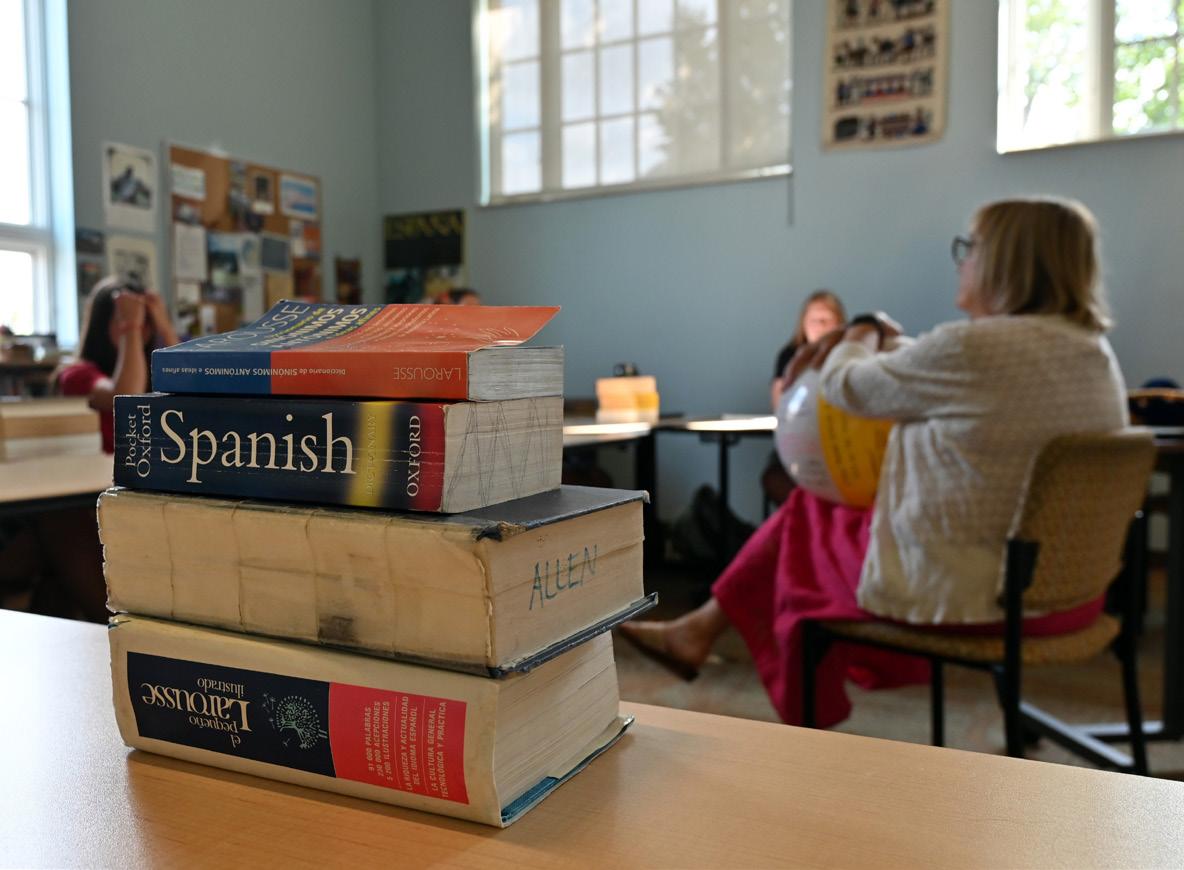
Full year, one credit
Spanish I equips students with the skills and confidence to navigate everyday life using Spanish through the study of vocabulary related to family, food, daily routine, clothing, vacations, and celebrations. From the beginning, Spanish is used in the classroom as much as possible to aid students in understanding and being understood when communicating in the target language. At the end of Spanish I, students should be able to narrate personal experiences in the present, simple past, and compound future, as well as communicate in spoken sentences and in simple written paragraphs. There is focus on cultural studies of Spanish-speaking Latin American countries and Spain, as well as Latinx people in the United States. Throughout the year, students complete projects to encourage real-world application of their language studies.
Full year, one credit; Prerequisite: Spanish I
Spanish II offers a comprehensive review of material presented in Spanish I, introducing, at the same time, new verb tenses such as the imperfect and preterit tenses, grammatical structures (reflexive verbs, object pronouns), and new lexicon built around thematic units such as festivals and traditions around the globe, personal preferences, health and well-being, housing, and technology. The class is almost exclusively conducted in Spanish to increase confidence in listening, writing, speaking, and reading in the target language. This is accomplished through exposure to authentic texts in all modes of communication. Listening and reading selections increase understanding and appreciation of Spanish, Latin American, and Latino history and culture. Students have opportunities to encounter and explore the authentic language through conversation, cooperative group projects, and forms of written expression that encourage cross-cultural comparison and general cultural literacy. After Spanish II, students are able to communicate more confidently using a variety of tenses with greater depth at the paragraph level on an expanding breadth of topics from a global perspective.
Full year, one credit; Prerequisite: Spanish II
Spanish III continues to focus on mastery of the four skills required for becoming proficient in a language: listening, speaking, reading, and writing. This course takes a thematic approach (pastimes, human relationships, travel, the environment) that allows students to expand their vocabulary while further developing/solidifying their knowledge of grammatical concepts learned in Spanish I and II, such as the present tense, the imperfect tense, and the preterit tense. By the end of this course, in addition to gaining more confidence in their language skills, students learn a new grammatical mood: the present tense of the subjunctive. During the year, students complete projects that allow them to continue developing their communicative and grammatical abilities, as well as their cultural competencies.
Full year, one credit; Prerequisite: Spanish II and department approval
This course uses authentic materials from a variety of Spanish-speaking countries to explore the cultural diversity and richness of the Spanish-speaking world. Students engage in independent and collaborative learning through interpersonal communication, presentational speaking, reading, and writing. Students are required to use the target language for the majority of the class and should be willing to take risks while speaking to improve their overall proficiency in the language. In this course, students revisit the topics of personal relationships, leisure activities, daily life and routines, health and well-being, travel and nature, and more. Students also gain a deeper understanding of grammatical concepts such as the uses of the verbs ser/estar and gustar and of the different verb forms such as present, preterite, imperfect, future, subjunctive, and conditional. Students in Honors Spanish III complete tasks targeted to improve the skills that they have already learned and also expand their language learning with new and more complex concepts. Students who wish to take the AP Spanish Language and Culture course are better prepared after taking Honors Spanish III.
Full year, one credit; Prerequisite: Spanish III
Spanish IV continues the study of the language with additional concentration on cultural understanding and literary analysis. Students review the more complex aspects of Spanish grammar, expand vocabulary for conversation, and improve writing styles by composing and revising written and oral forums and essays. Students also explore unique cultural elements of the Spanish-speaking world through projects, presentations, and song analysis. Spanish IV students speak Spanish for the majority of the class and engage in daily informal conversation with peers to increase comfort and proficiency in speaking and communicating in the target language. This course reinforces the ability to communicate formally and informally in the target language.
Full year, one credit; Prerequisite: Spanish IV
Spanish V continues to develop and reinforce communicative skills with added concentration on conversational and written Spanish and the study of Latin American and Spanish civilization and culture. Students utilize the more complex grammar structures introduced in Spanish IV in written and oral work. The students write essays in a variety of styles, narrating in the past, present, and future and expressing opinions with previously studied structures, including the past tenses and subjunctive. Students regularly converse about subjects including art, cinema, literature, politics, current events, and contemporary issues important in the Spanish-speaking world. Activities and assessments include intensive class discussions, directed and free-response conversations, detailed oral presentations, and exploration and critical interpretation of current issues and some works of literature. Spanish is spoken exclusively in this class.
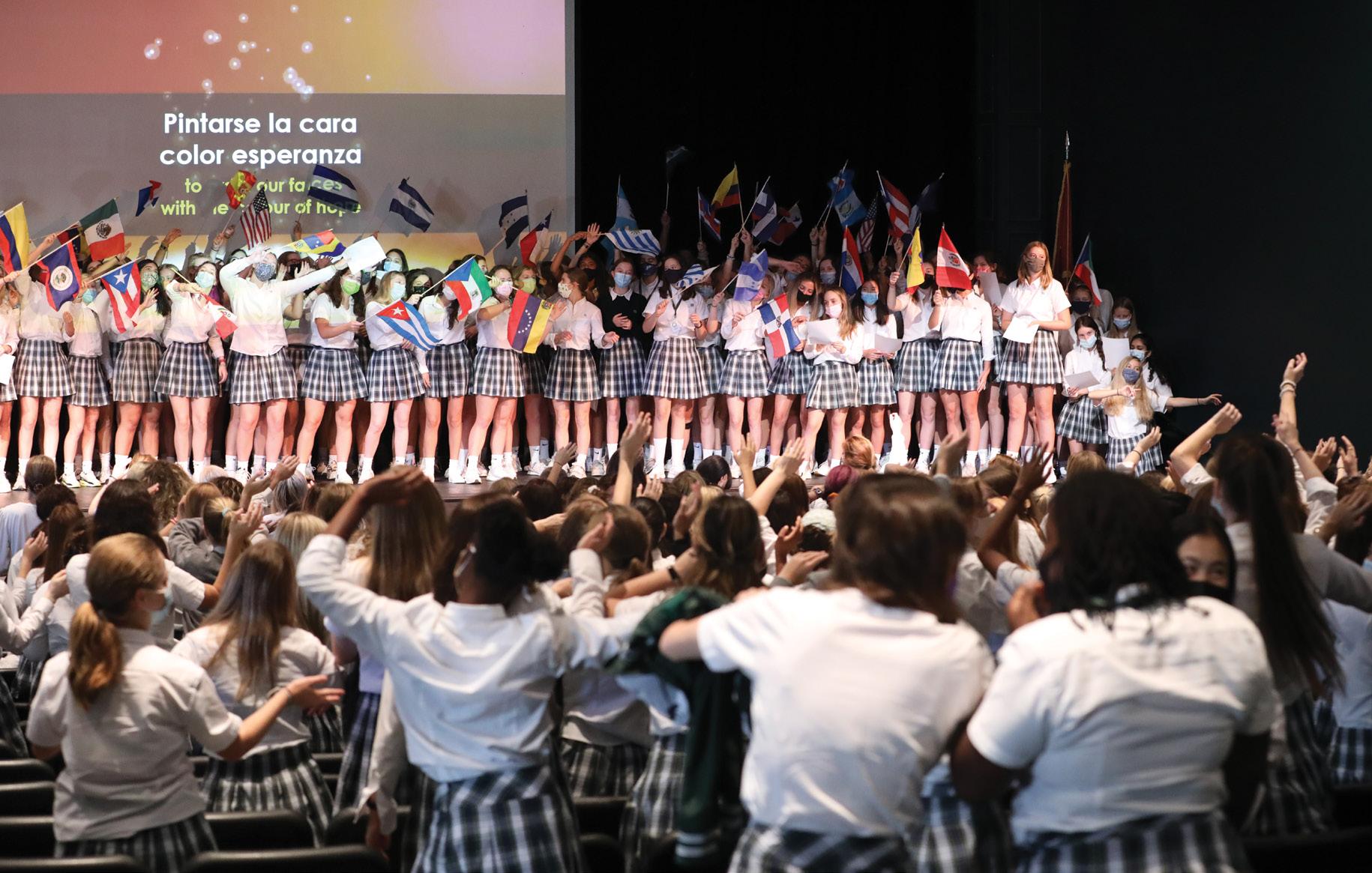
Full year, one credit; Prerequisite: Honors Spanish III, Spanish III, or Spanish IV, and department approval
AP Spanish Language and Culture allows students to explore cultural features of the Spanish-speaking world through the study of six primary themes: global challenges, science and technology, contemporary life, personal and public identities, families and communities, and beauty and aesthetics. Students considering the course should have a working knowledge of communicating in present (both indicative and subjunctive) as well as preterite, imperfect, and conditional. In preparation for the AP exam, students write formal emails and essays, record cultural comparisons, read and listen to complex passages and answer questions, and participate in recorded conversations. Throughout the year, there is an emphasis on project-based learning and presentations. The course is conducted exclusively in Spanish. Enrolled students are required to take the AP Spanish Language exam in May.
Full year, one credit; Prerequisite: Honors Spanish III, AP Spanish Language and Culture or Spanish IV and department approval
The AP Spanish Literature course introduces students with advanced language skills to the formal study of a representative body of literary texts in Spanish. Its goals are multiple: to increase the proficiency of the student’s language skills; to enable her to read and to understand prose and verse of moderate difficulty; to formulate and express critical opinions and judgments in correct Spanish; to read and analyze critically and to discuss perceptively representative works of Spanish literature. The class is not a formal survey of literary history but rather introduces representative works of poetry, prose, and drama from different periods within a cultural context. The course is organized around specific themes: interpersonal relationships, duality of being, encounters between cultures, construction of gender, time and space, and creation of literature. Students enrolled in this course are required to take the AP Spanish Literature exam in May.
Full year, one credit; Prerequisites: Highest level offered in a given language
The independent study is designed for students who have completed the highest level courses offered in the language and wish to continue their study of their language. Interested students should submit an independent study proposal. When registering for classes, qualified students should see the academic dean for more information.

Harpeth Hall believes that the arts are integral to education, fostering perceptual awareness, critical analysis, and creative problem-solving. The fine arts program includes choral and instrumental music, theatre, studio art, art history, photography, digital video, and media arts. Graduation requires one full credit in fine arts, achievable through a full-year fine arts class or two semester-long courses. Arts courses offer unique knowledge and meaning not found in other subjects, while reinforcing basic educational skills. In many ways, arts courses mirror the complexities of adult life where there are seldom clear-cut choices or verifiable truths. In visual and performing arts courses, students actively engage in the creative process under instructors’ guidance. The creative elements of problem-solving require analysis and synthesis and call upon the senses to think, feel, act, and evaluate.
Concert Choir
Full year, one credit; Open to 9th, 10th, 11th, and 12th grade students
With a focus on music literacy, foundational choral technique, and ensemble skills, Concert Choir is open to all students. The choir sings in a variety of styles with repertoire spanning the full choral canon. Students in this class are eligible to audition for the Freshman Honor and Tennessee Midstate and All-State choirs. As a performing arts elective, students are required to participate in all concerts.
Chamber Choir
Full year, one credit; Open to 9th, 10th, 11th, and 12th grade students with department approval
Chamber Choir is an audition-based small ensemble that performs at engagements on and off campus. Students sing in a variety of musical styles and develop their independent musicianship. Students in this class are expected to audition for Tennessee Midstate and All-State honor choirs and are required to participate in all concerts. One year of Concert Choir or permission from the instructor is required to participate in the Chamber Choir.
Honors Chamber Choir
Full year, one credit; Open to 11th and 12th grade students with department approval
Honors Chamber Choir is designed for students planning to pursue music beyond the upper school. To receive honors credit, students complete a capstone portfolio and present to the fine arts faculty. Students interested in this opportunity need to meet with their director to discuss the portfolio requirements. Additional requirements include auditioning for Midstate and All-State choirs, performing a solo at the spring arts recital, and serving as a section leader. Students may only earn this honors credit once.
Concert Orchestra
Full year, one credit; Open to 9th, 10th, 11th, and 12th grade students
The concert orchestra is a whole ensemble of strings. Students in this ensemble must have at least two years of experience on their instruments or receive the instructor’s approval. This ensemble performs four concerts per year. Musical genres explored in this class include classical, rock, new-age, fiddle, renaissance, baroque, and romantic. Students are introduced to music theory and are exposed to many aspects of performance and history. The concert orchestra also competes at concert festivals, and students are eligible to audition for Tennessee Midstate and All-State orchestras.
Chamber Orchestra
Full year, one credit; Open to 9th, 10th, 11th, and 12th grade students with department approval
The chamber orchestra is an auditioned, premier ensemble. Students in this small ensemble are more advanced and must have a minimum of three years of experience on their instrument. This ensemble performs a minimum of four to six concerts per year and will compete at concert festivals and MTSBOA events. Students are expected to audition in Tennessee Midstate and All-State orchestra ensembles and perform in solo and ensemble competitions. Musical genres explored in this class include classical, rock, new-age, fiddle, renaissance, baroque, and romantic. Students are introduced to more intensive music theory and are exposed to many aspects of performance and history.
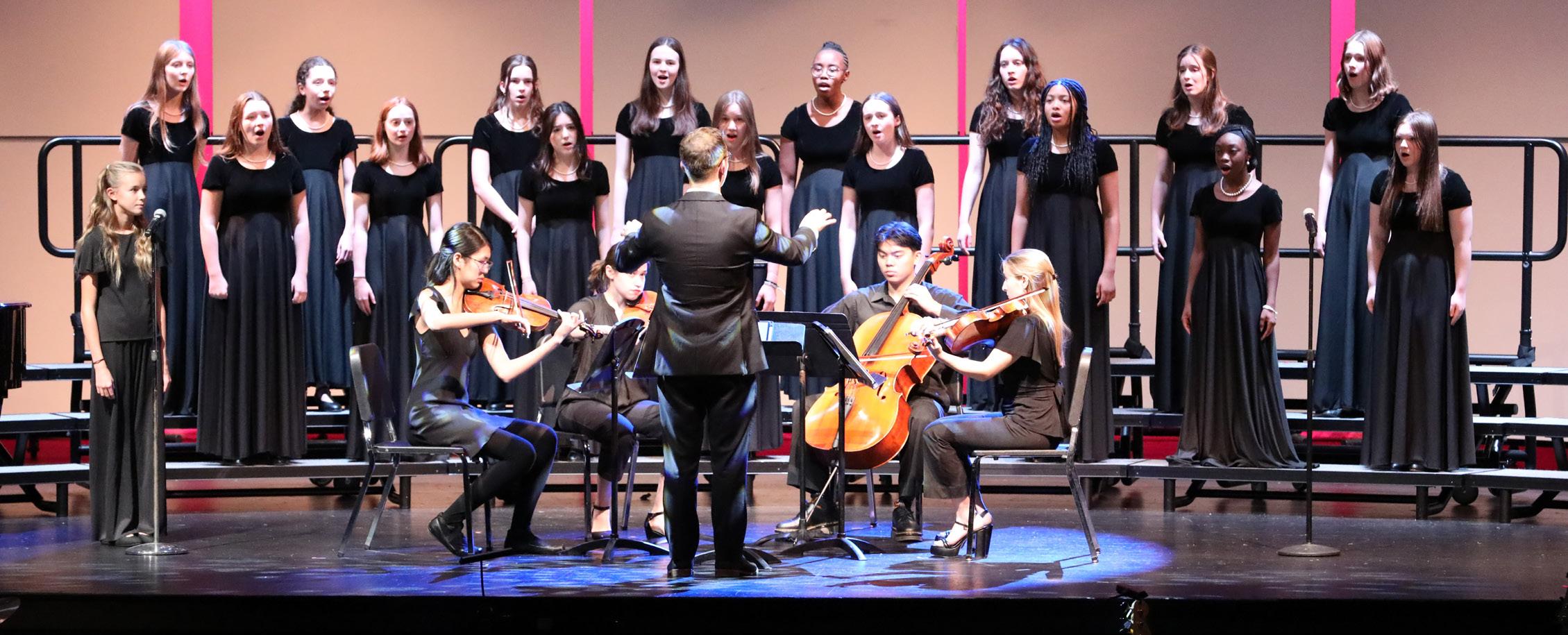
Full year, one credit; Open to 11th and 12th grade students with department approval
Honors Chamber Orchestra is designed for students planning to pursue music beyond the upper school. To receive honors credit for Chamber Orchestra, students complete a capstone portfolio and present it to the fine arts faculty. Students interested in this opportunity need to meet with their director to discuss their portfolio requirements. Additional requirements for the credit include auditioning for Midstate, performing a solo at the spring arts recital, and serving as a section leader. Students may only earn this honors credit once.
One semester, one-half credit; Open to 9th, 10th, 11th, and 12th grade students
Modern band is designed for students with experience playing guitar, bass, drums, keyboard, brass, and/or woodwind instruments. This course examines a variety of contemporary musical styles, including pop, rock, country, and jazz. Students in Modern Band will also be introduced to improvisation, songwriting, and the recording arts. Students are expected to participate in all concerts. Students are admitted to the class with the approval of the teacher. No audition is required.
Full year, one credit; Open to students who have taken at least four semesters of music or with permission of the department
The AP Music Theory course focuses on concepts and skills emphasized within introductory college music theory courses and helps students become sophisticated and thoughtful music listeners, performers, and composers. AP Music Theory students learn to recognize, understand, describe, and produce the basic elements and processes of performed and notated music. To become proficient with these skills, students must consistently practice applying course concepts through aural analysis, score analysis, sight singing, dictation, and composition. Students enrolled in this course are required to take the AP Music Theory exam in May.
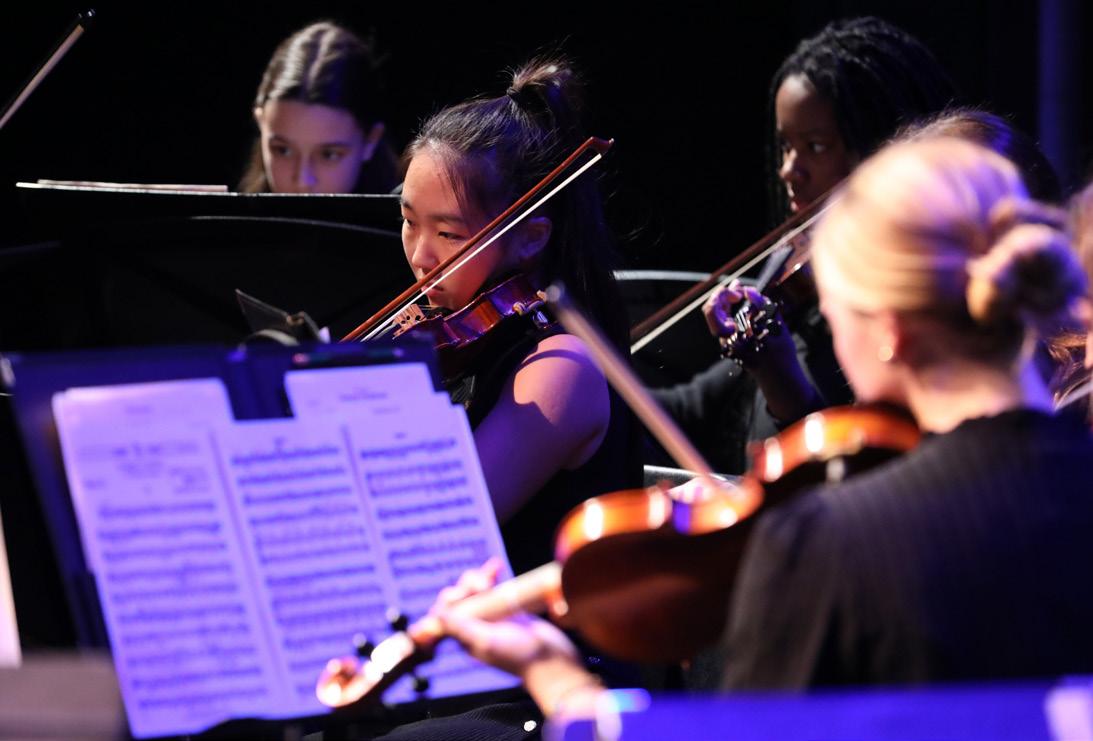


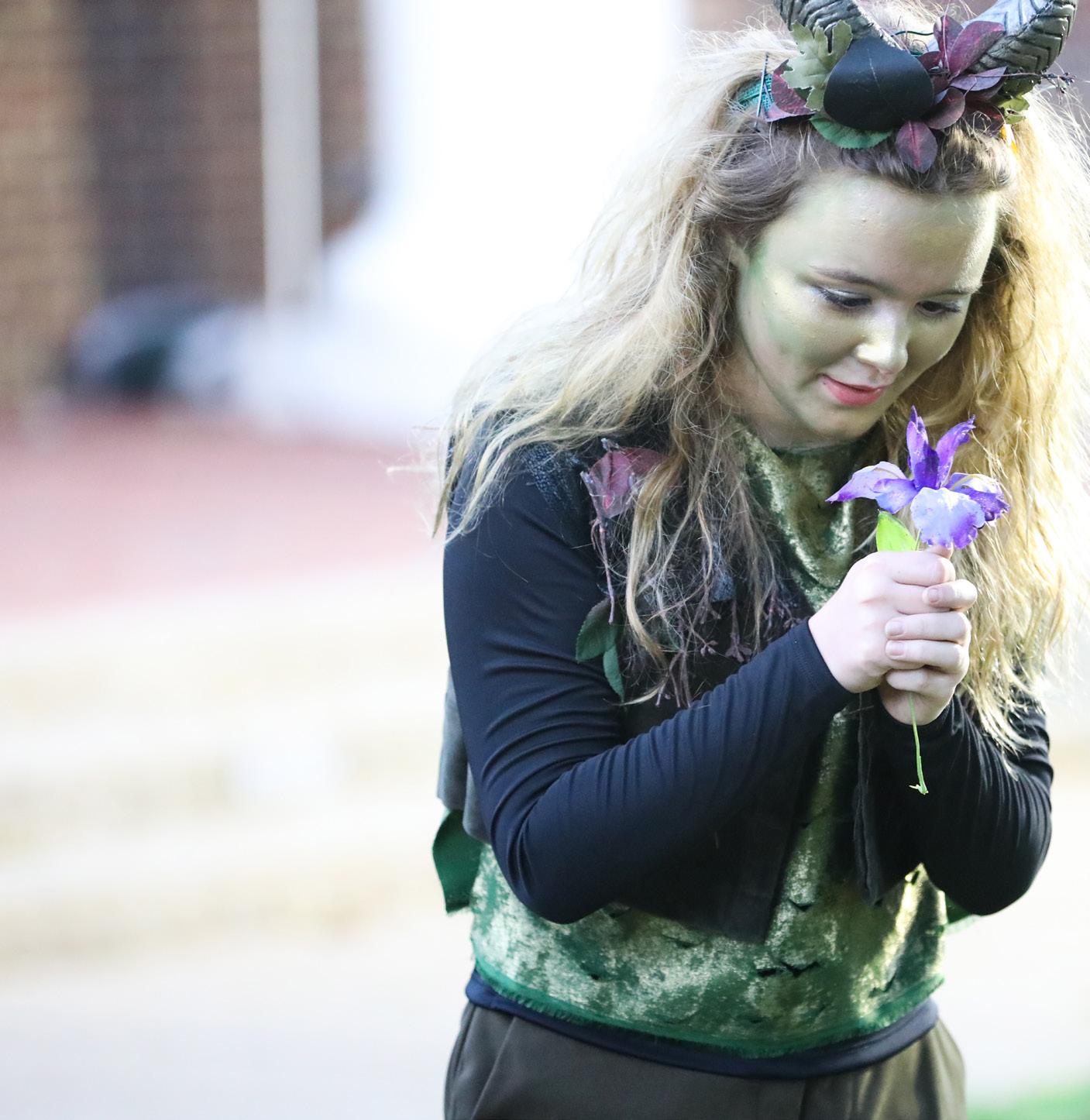


Through the performing arts, girls develop creativity and confidence and make lifelong friends. In the theatre program, students may act and sing in dramatic, musical, and comedy productions and participate behind the scenes — from lighting and sound to set building and stage management.
One semester, one-half credit; Open to 9th, 10th, 11th, and 12th grade students
Students pack their acting toolkit by learning basic methods of acting through presentational and representational acting. They develop creativity and spontaneity through improvisations, basic movement for the stage, and using their voices and bodies for dramatic expression. Students explore physical acting, dialogue, listening and reacting, and finding moments that connect them to the story being told. Students work on monologues and scenes in class. For anyone who has always wanted to try acting, this is a wonderful way to try it out in a safe space.
Full year, one credit; Open to 10th, 11th, and 12th grade students; Prerequisite: Acting I Studio Theatre prepares students to create theatre beyond the classroom. Students begin by studying period acting styles necessary for plays written or that take place before the 20th century to advance their performance skills. Topics may include Shakespeare, Moliere, Greek, and Restoration. During this acting unit, interested students also curate their “audition package” for colleges or professional auditions. In the next unit, students study the director’s role by delving into script analysis, casting, blocking, set and costume design, and rehearsal management. During the second semester, students apply the knowledge to produce their own work as playwrights, directors, costume designers, actors, or a combination thereof. This course culminates in an Evening of One Acts presented as part of Harpeth Hall and Montgomery Bell Academy’s Mainstage Theatre seasons. Students may take this course more than once during the upper school. If taken more than once, the course will be noted as Studio Theatre II: Theatre in Practice.
One Semester, one-half credit; Open to 9th, 10th, 11th, and 12th grade students
This course is designed to introduce students to the technical aspects of theatre. Areas of focus include scenic and theatrical design, lighting design and implementation, and basic audio systems. Course instructors provide fundamental knowledge as students practice the skills needed to perform hands-on support for Harpeth Hall performing arts productions, including music, dance, and theatre. This course introduces theatre production spaces, shop tools, construction materials, special effects, and the overall management of a theatrical production and stage equipment. This course includes a backstage field-trip component each semester to observe professional backstage works, artistic choices, and technical elements and provide exposure to professional career paths in the technical theatre and production fields. Students may take this course more than once during the upper school. If taken more than once, the course will be noted as Technical Theatre II.
The visual arts program at Harpeth Hall offers a diverse range of artistic expressions, including 2-D and 3-D studio works, photography, multimedia courses, and art history. Students are encouraged to explore courses across these disciplines to develop a comprehensive understanding of visual arts. A shared visual vocabulary connects these areas, fostering an appreciation for the cultural impact of art. The goal of each course is to highlight the creative and expressive possibilities of the medium while developing the practical skills that form the basis of serious study. As students advance, they delve deeper into personal and aesthetic exploration. Students at all levels are encouraged to participate in the annual spring student art show. Course fees vary, with yearlong studio courses priced at $150, semester studio courses at $75, and media arts at $50. Financial assistance is available for students demonstrating need through an application process.
Art Foundations (Previously Art I)
Full year, one credit; Open to 9th, 10th, 11th, and 12th grade students
Art Foundations is a yearlong introduction to four main artistic media: drawing, printmaking, ceramics, and painting. The course gradually builds skills and provides time for students to exercise their creativity. Students also gain exposure to relevant artists and develop ideas using the sketchbook.
Design Foundations
Full year, one credit; Open to 9th, 10th, 11th, and 12th grade students
Design Foundations is a yearlong introduction to photography, graphic design, and media arts. The course begins with a digital and film-based approach to photography. Students learn the basic principles and techniques of the photographic medium and apply that knowledge in a series of increasingly challenging assignments. Students transition to digital image editing as they learn the fundamentals of Adobe Photoshop. Emphasis is on the practical utility of image creation in academia and the workforce. Students are introduced to digital video production as another useful camera-based presentation and storytelling method.
Ceramics I
One semester, one-half credit; Open to 10th, 11th, and 12th grade students;
Prerequisite: Art Foundations, Design Foundations, or interested seniors
This course is a continued study of the medium of ceramics, building upon the skills learned in Art I. Students have the opportunity to work with clay using a variety of methods, including slab construction on the wheel. Projects incorporate aspects of form and function, creating both functional and sculptural works inspired by historical and contemporary ceramics with an in-depth looks at the work of specific ceramic artists. Projects are aimed at solving problems in 3-D design and expressing thematic ideas.
Ceramics II and Ceramics III
One semester, one-half credit; Open to 10th, 11th, and 12th grade students;
Prerequisite: Ceramics I (enrollment in Ceramics III requires completion of Ceramics II) These courses build on the skills and ideas of Ceramics I with more in-depth studies in the principles of 3-D design and variations in surface treatments. Emphasis is on honing and refining basic skills, integrating techniques to create unique forms, and expressing concepts through form. Students create both functional and sculptural works. Works of ceramicists from both ancient and contemporary cultures support and inspire students’ studies. Serious students are expected to spend time outside of class developing their throwing skills and/or working on larger sculptural works. The Ceramics III student will develop a series of personal works at a level that could be included in their portfolio if they choose to pursue AP 3-D Art and Design.
One semester, one-half credit; Open to 10th, 11th, and 12th grade students;
Prerequisite: Art Foundations, Design Foundations, or interested seniors
This is a course devoted to drawing from direct observation. Students further develop the drawing skills acquired in Art Foundations (Art I) and learn to coordinate eye, hand, and mind to understand how structure is created. The course familiarizes students with a variety of drawing methods and materials, including charcoal, pencil, Conté crayon, ink, and pastel. Regular sketchbook assignments supplement work done in the classroom.

One semester, one-half credit; Open to 10th, 11th, and 12th grade students;
Prerequisite: Drawing I (enrollment in Drawing III requires completion of Drawing II) As a continued study in drawing with more long-term projects, this course includes mixed media work and additional outside assignments.
One semester, one-half credit; Open to 10th, 11th, and 12th grade students
This course introduces students to film analysis as a means of engaging more deeply with cinema and culture. The goal is to provide students with the tools to understand the technical and aesthetic dimensions of film and how they come together to create meaning. The course includes a brief history of cinema; discussions of genre, style, and narrative structure; and an overview of the formal elements of film production (writing, direction, cinematography, sound, film editing, and production design). Students view and discuss important films, read about them, and write regularly to demonstrate understanding. The films shown vary from one semester to the next and include silent films, shorts, documentaries, contemporary films, and major works from the American cinematic canon from 1880 to the present.
One semester, one-half credit; Open to 10th, 11th, and 12th grade students
Prerequisite: Art Foundations, Design Foundations, or interested seniors
Media Arts builds upon the Foundations course(s) to introduce students to the world of graphic design and visual rhetoric. Not only do students become proficient with digital tools of image manipulation, but they also are encouraged to think critically about advertising and its uses. Design principles become front and center as students become adept at print publication. Past projects include ads, letterhead design, font projects, public service posters, seasonal photo collages, CD art, a digital portrait series, and more.
One semester, one-half credit; Open to 10th, 11th, and 12th grade students; Prerequisite: Media Arts I
Media Arts II builds upon the facility with image editing (and the understanding of affective design) acquired in Media Arts I and then markedly expands this skill set. Branching out into broader areas of media expression — including advertising and layout for print, documentary presentation, web design, and more — the course introduces students to software programs such as Adobe InDesign and Adobe After Effects to provide students with an array of methods for conveying ideas and marketing products. Each student is encouraged to participate in one of Harpeth Hall’s print or online publications (yearbook, literary magazine, newspaper). Students present work at the end of the semester that reflects a concentration in one of the following categories: layout, web design, documentary presentation, advertisement (video or print), animation, digital illustration, or advanced image compositing.
One semester, one-half credit; Open to 10th, 11th, and 12th grade students;
Prerequisite: Art Foundations, Design Foundations, or interested seniors
This course focuses on the fundamentals of oil painting. Students explore a variety of techniques for using oil paint expressively, as well as a range of subject matter, including still life, landscape, figures, portraiture, non-objective and imaginative images. This course emphasizes color theory and exploration as it builds upon the skills learned in Art Foundations (Art I). The course includes group discussions and critiques, writing assignments, and sketchbook assignments. Students also gain exposure to relevant artists and take field trips to the Frist Center, artist studios, and outdoor painting locations.
One semester, one-half credit; Open to 10th, 11th, and 12th grade students;
Prerequisite: Painting I (enrollment in Painting III requires completion of Painting II)
Building upon the skills in Painting I, students embrace more challenging projects and ideas to find their voice through painting. Mixed media, homework, sketchbooks, field trips, and slide shows continue to be an integral part of the class, as well as researching artists. Students utilize oil paint and a combination of painting mediums to make creative and conceptual works and continue to build technical skills.
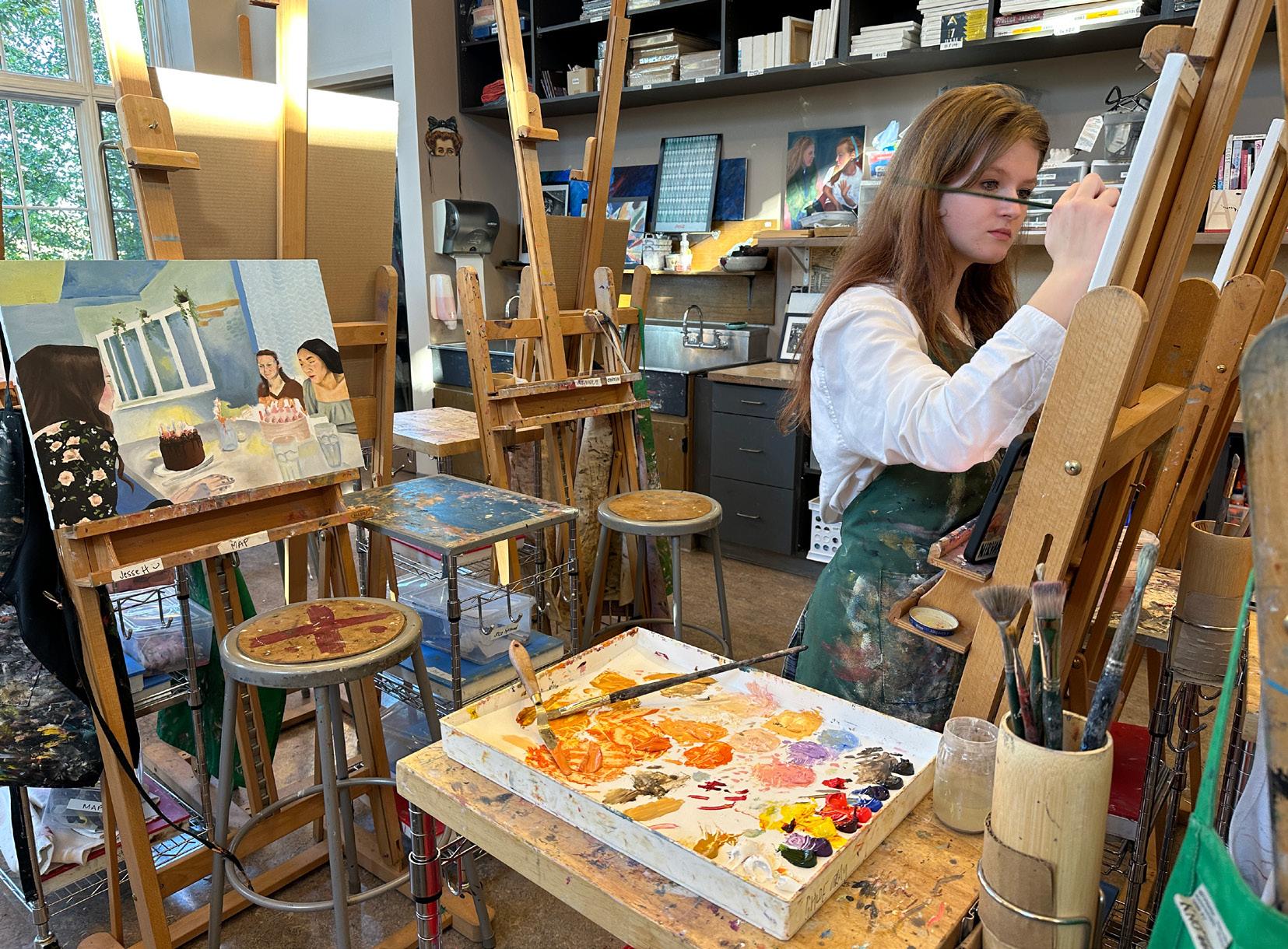
One semester, one-half credit; Open to 10th, 11th, and 12th grade students
Prerequisite: Art Foundations, Design Foundations, or interested seniors
An introductory course in the fundamentals of photography, this film-based, black-and-white photography course is the foundation for all successive work in photography. Students learn the basic principles and techniques of this medium and apply that knowledge in a series of increasingly challenging assignments. Technical and artistic concerns are emphasized as necessary components of successful work. The course also includes group discussions and critiques, writing assignments, and occasional films. Topics for discussion are not limited to the visual arts, and students are encouraged to think in broad-minded ways.
Note: Students in Photography I must have a 35mm camera with a manually adjustable lens. The school has a limited number of these cameras available for loan on a first-come-first-serve basis.
One semester, one-half credit; Open to 10th, 11th, and 12th grade students; Prerequisite: Photography I
With a continuation of wet-process (darkroom) photography introduced in Photo I, this course has higher conceptual and technical expectations. The assignments and lab work format is similar to the beginning course, but Photography II includes some digital shooting assignments as well. Students also learn about professional lighting techniques in the studio and have some night photography assignments.
Note: Students in Photography II must have a 35mm camera with a manually adjustable lens.
The school has a limited number of these cameras available for loan on a first-come-first-serve basis.
One semester, one-half credit; Open to 10th, 11th, and 12th grade students;
Prerequisite: Any two semesters of photography and/or media arts
This course features further study of the still image through digital photography with an introduction to working in video. The course continues to emphasize effective composition and design and explores color theory. On the technical side, the course introduces basics such as file formats, image editing and manipulation, and preparing images for printing. Students complete several thematic assignments and, as a final project, submit a body of work that emanates from a self-directed area of concentration.
One semester, one-half credit; Open to 10th, 11th, and 12th grade students;
Prerequisite: Art Foundations, Design Foundations, or interested seniors
This course bridges photography and studio artwork together primarily through the processes of image-based printmaking. Students utilize the studio’s presses and an array of inks to make creative works that are heavy in design and concept as well as technical application of media. Processes included in the course are cyanotypes, photo transfers, and other mixed media applications.
One semester, one-half credit; Open to 10th, 11th, and 12th grade students; Prerequisite: Photographic Printmaking I (enrollment in Photographic Printmaking III requires completion of Photographic Printmaking II) This course builds on the skills and ideas of Printmaking I with a more individualized focus. Students are encouraged to test the boundaries of the printmaking presses and image manipulation.
Note: Printmaking II and/or III may meet in conjunction with Printmaking I, depending on enrollment and scheduling.
Full year, one credit; Open to 12th grade students; Prerequisite: minimum five semesters of any combination of studio art, photography, or multimedia classes (note an arts-related Winterim may be counted as one semester)
This course is for highly motivated students who work on structured assignments and independent studio work in any artistic medium. This course encompasses AP Studio Art in all forms: drawing, 2-D design, and 3-D design. Expectations are high for this demanding course, where students are expected to be passionate about art making and devote ongoing time to working outside of class. Students are encouraged to produce assigned projects during the summer, and/or apply for summer portfolio building programs. All students will exhibit their work in the Marnie Sheridan Gallery.
Full year, one credit; Open to 11th and 12th grade students (students in 10th grade may take the course with approval by the teacher and the director of the upper school)
AP Art History is a survey of global art from prehistory to the present. This college-level course teaches students to understand works of art through contextual and visual analysis. The class moves at a quick pace, examining works of art within their historical context by exploring issues such as politics, religion, patronage, gender, function, and ethnicity. This rigorous class requires in-depth nightly readings and a serious commitment to one’s learning. Museum visits are incorporated into the curriculum. Students gain a broad yet thorough understanding and appreciation of art through history, as well as history through art. Students enrolled in this course are required to take the AP Art History exam in May.
The wellness department at Harpeth Hall promotes healthy choices that contribute to healthy living. Through course offerings, students learn the significance of regular physical activity for both physical and mental well-being. Upper school classes focus on improving motor skills, sportsmanship, and respect for oneself and others. The program cultivates overall wellness by offering challenging learning experiences across various aspects physical fitness, prioritizing movement. In addition, a self-defense unit develops students’ risk awareness and risk reduction strategies. Girls enrolled in Yoga or Wellness of the Mind and Body will practice basic self-defense techniques, leading to a a nationally recognized R.A.D. System of Self-Defense certification after two semesters. Each student at Harpeth Hall is required to take seven semesters of wellness courses, which are semester-long and can be repeated as often as a student chooses.
Wellness: Yoga
One semester, one-half credit; Open to 9th, 10th, 11th, and 12th grade students
Yoga is a mindful practice that emphasizes the development of strength, stability integrity, and vitality in both body and mind. It achieves this through dynamic movement, breath control, and meditation techniques. In this class, students experience increased balance along with improved ease and range of motion as they explore the fundamentals of correct postural alignment and body mechanics. This awareness is applied to every yoga posture and translates directly to all sports, dance, and daily activities. The power of attention is central to the practice of yoga, and class exercises expand physical capacity and mental focus and concentration. Practice in being present moment to moment, noticing one’s habits, and working systematically toward one’s individual goals provides students with powerful resources and tools in stress management, pain relief, impulse control, and self-confidence. This course uses props and modifications for all levels and emphasizes self-care and self-actualization. More advanced postures, variations, and techniques are offered to returning students who wish to deepen their practice and wellness tool bag.
One semester, one-half credit; Open to 9th, 10th, 11th, and 12th grade students
The primary objective of Strength and Conditioning is to assist in the physical and mental development of Harpeth Hall athletes so that they compete at the highest level while minimizing the risk and severity of injuries. The course is designed to create a complete athlete by developing explosive power, absolute strength, muscular endurance, speed and quickness, flexibility, agility, and cardiovascular fitness. The course achieves these measured athletic qualities using Olympic lifts and their variations, along with other exercises containing plyometric properties, high-intensity bodyweight strength exercises, movement preparatory exercises, and researched periodization.
One semester, one-half credit; Open to 9th, 10th, 11th, and 12th grade students
This course provides students with a variety of physical components, including cardiovascular fitness, core stability, muscular strength and endurance, and body alignment, as well as a focus on mindfulness and attention to improving one’s focus and concentration. A 21-day challenge is done in this course to help establish habits around hydration, sleep, and cell phone use. The class also focuses on the importance of lifelong wellness. Students are exposed to a myriad of activities using the cardio facility, fitness rooms, and an indoor obstacle course. Current fitness trends, lifetime sports, fun games, and unstructured playtime are incorporated into the class, emphasizing the enjoyment of exercising the body. This course caters to students looking for wellness improvements through multiple outlets.
Four-day class before the school year begins; Open to 10th, 11th, and 12th grade students
This immersive four-day class takes place on the MBA Long Mountain campus during the week prior to the fall semester start. The course focuses on planting the seeds for a lifetime of wellness. Key experiences include are hiking with the Trail of Tears, high and low ropes course, caving, leadership opportunities, solo time, PCE (personal challenge event such as final long run), reflection, mindfulness, and gratefulness practices. This is offered at no extra cost and allows students to take a study hall during either the fall or spring semesters the year they take the Wellness in the Woods class. Students may only be take the course once during a high school career, and interest does not guarantee enrollment. If the course is over-enrolled, students will be selected by a randomized drawing and notified prior to the summer break.
Wellness: Dance
Full year; Open to 9th, 10th, 11th and 12th grade students
This is a performance-based ensemble welcoming students of all ability levels. Students in this course perform in both the fall and spring, featuring techniques from classical jazz, contemporary, ballet, and other dance genres taught throughout the semesters. Classes focus on strength, flexibility, technical skills, and choreography to prepare for performances. Students are required to make a full year commitment to Wellness: Dance and to participate in all performances. Those students who cannot work Wellness: Dance into their schedule still have the opportunity to participate in Dance Company outside of school hours.
Life Balance I
Full year; Required for 9th grade students
Life Balance provides a small-group setting where 9th grade students receive general information about Harpeth Hall and learn more about each other and themselves in a supportive environment. The small-group setting facilitates a student’s transition into the upper school environment. Life Balance helps adolescent girls examine topics they face that ultimately may impact their health, safety, and well-being. The class is based on an integrative wellness model and centers on the principles of mind-body connection, meaningful life purpose, relationships, and emotional life. Topics include transition to upper school, personality style, relational aggression, conflict resolution, body image and disordered eating behavior, mindfulness-based stress reduction, neuroscience of stress, substance use, and healthy relationship education. The classroom format is a combination of informational presentations, videos, educational resources, and open discussion.
Full year; Required for 10th grade students
During the upper school years, the students’ desire for independence increases, but the responsibility and decision-making skills necessary to successfully navigate this independence is still developing. The curriculum for Life Balance II is designed to help 10th grade students cultivate these skills and discuss other issues relevant to this developmental level. The class is based on an integrative wellness model and centers the principles of relationships and connection, mind-body connection, meaningful life purpose, and emotional life. Topics include personality types and traits, healthy relationships, body image, education, stress management, and consent and boundaries in relationships. The classroom format is a combination of informational presentations, videos, educational resources, and open discussion.
Students who want to stretch beyond Harpeth Hall’s curriculum can add an additional course through One Schoolhouse with the approval of the director of the upper school. These courses are recommended for the independent and mature student who would like to exceed the expectations of the Harpeth Hall curriculum. With the exception of Multivariable Calculus and Differential Equations, taking an online course through One Schoolhouse takes the place of a sixth course/elective (i.e. cannot be added as a seventh course).
Harpeth Hall will pay half of the One Schoolhouse tuition for students who elect to enroll in any One Schoolhouse course and receive approval from the director of the upper school and the One Schoolhouse committee. Families receiving financial aid are responsible for 50% of the tuition after their financial aid percentage has been applied. Please be sure to review the refund policy listed below.
Harpeth Hall will pay full tuition for students enrolled in Multivariable Calculus and Differential Equations. This course will be listed on the Harpeth Hall transcript, and semester grades will be included in the GPA. Students interested in taking a summer course through One Schoolhouse are responsible for 100% of the tuition.
Refund Policy:
The Harpeth Hall business office bills families for their portion of tuition for courses taken through One Schoolhouse. Student course tuition is fully refundable, for any reason, before the start date of the course. For the 2024-25 school year, a student may withdraw and receive a full refund prior to August 31 at 5 p.m. ET. Harpeth Hall will refund 50% of tuition paid by families for course withdrawals made by 5 p.m. ET the Friday of the second week of the course; no refunds will be granted after this date. If One Schoolhouse cancels class due to insufficient enrollment, the student may transfer to another class or receive a full refund.


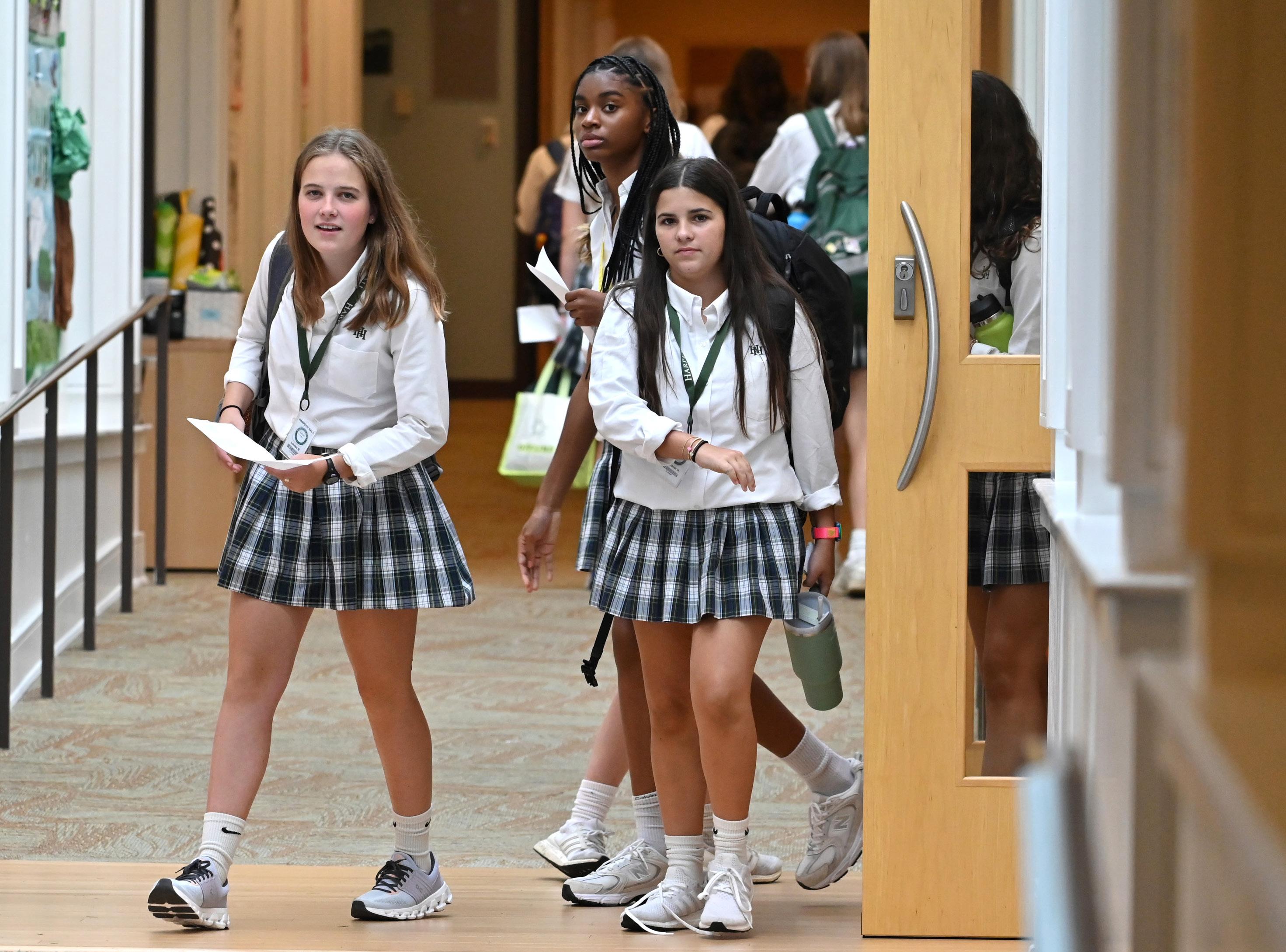
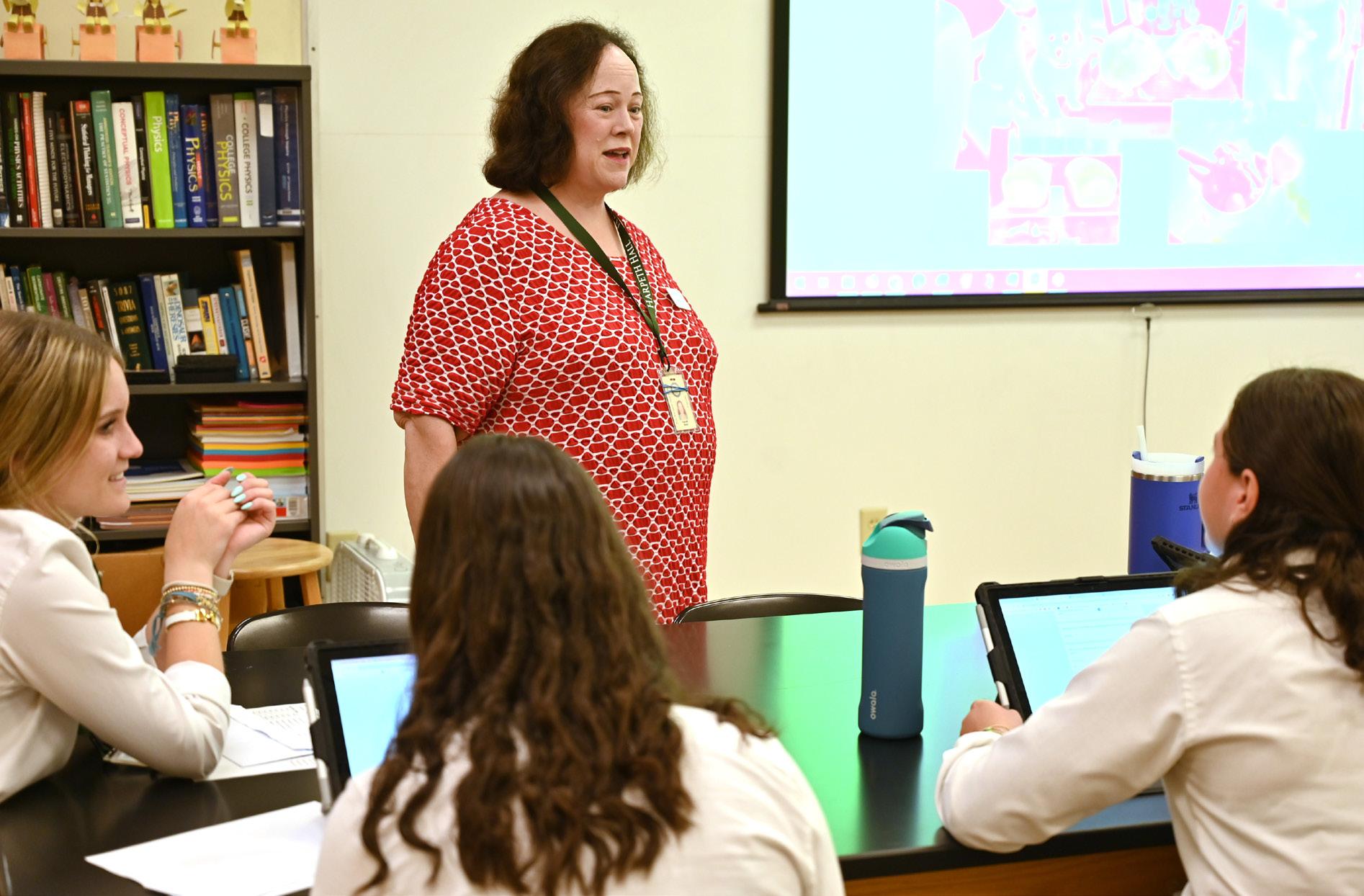
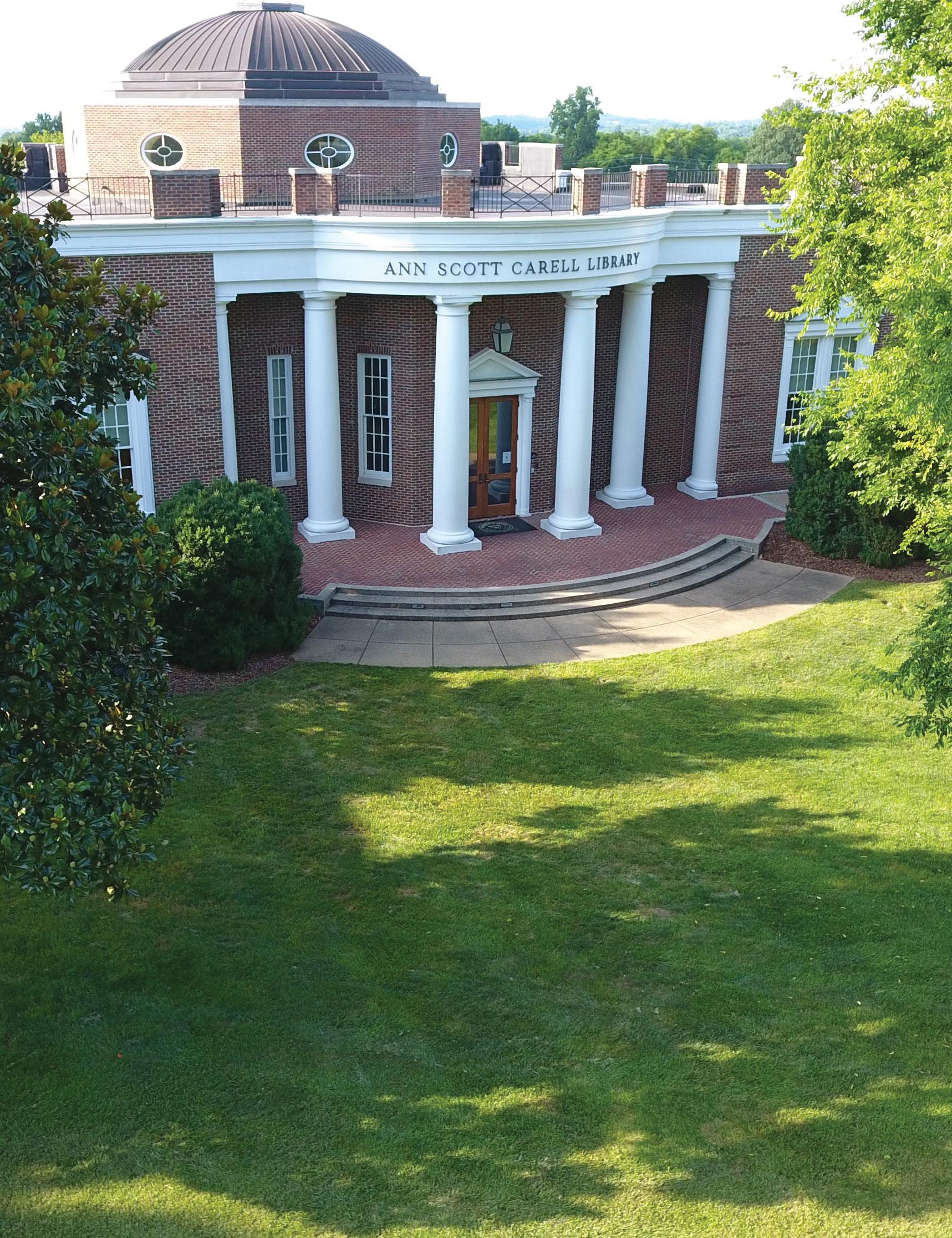

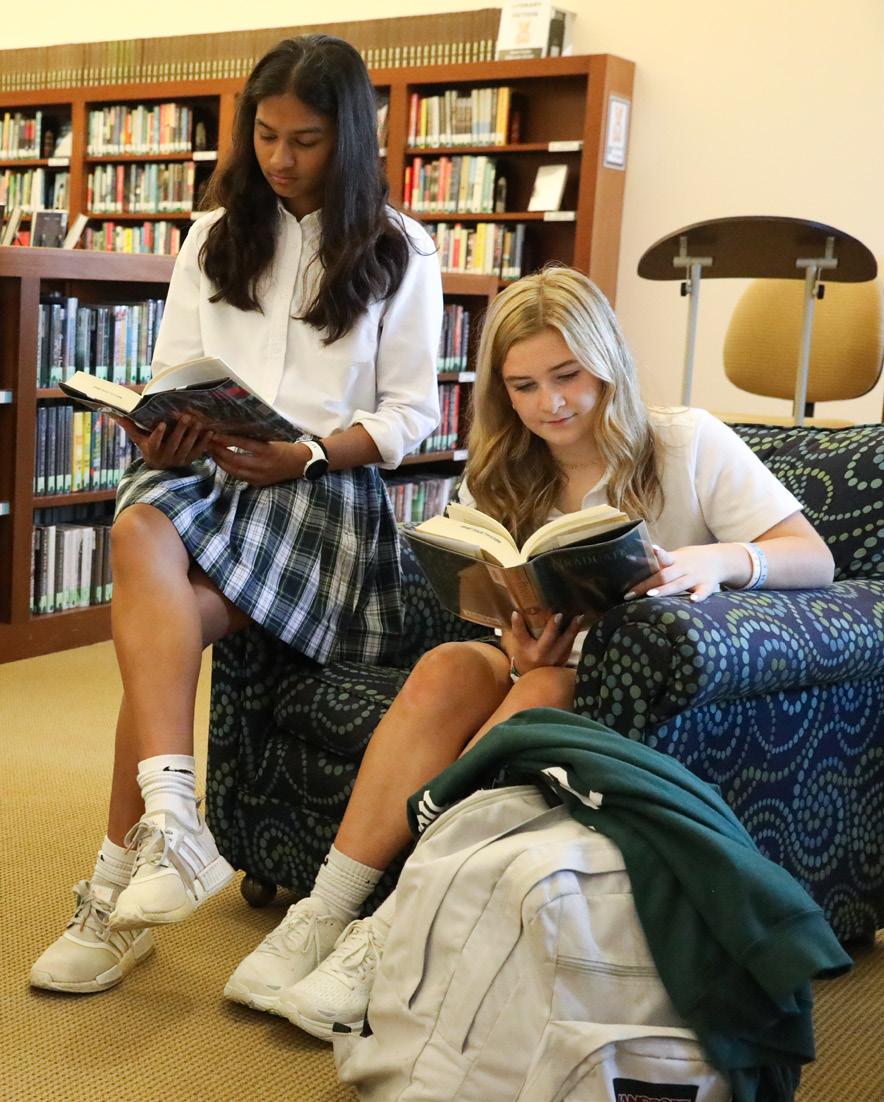
The Ann Scott Carell Library serves as the academic heart of Harpeth Hall. Throughout their school career, students build library and digital literacy skills that enhance classroom learning and prepare them for college and a career. The library offers access to nearly 33,000 books, 60,000 e-books, and more than 60 professional and scholarly databases. The quiet and welcoming space provides a place for students to learn, engage with one another, and study by the fireplace.
Information Literacy
Library, technology, and digital citizenship skills are taught at all grade levels and across all disciplines. Librarians and faculty teach these skills within the context of the curriculum.
Professional Librarians
Professional librarians work with students at all grade levels to develop a love of reading. The librarians present book talks and develop reading lists to assist students in finding just the right books to read. In addition, students learn the entire research process, beginning with accessing and evaluating materials through to the presentation of research and a list of works cited.
Research Skills
Research skills are introduced in the middle school and are reinforced throughout the upper school. Students learn to use the catalog to locate print and online sources, organize and incorporate information from a variety of sources, properly cite sources, and understand how to avoid plagiarism. When students graduate from Harpeth Hall, they have the skills to perform sophisticated research.
Technology Specialists
Technology specialists work with students to teach them the skills necessary to use computers to enhance classroom learning. They also guide students in ways to be responsible digital citizens. From authoring web pages to producing videos or creating infographics, these skills are taught collaboratively with the classroom teacher to enhance specific projects and assignments.
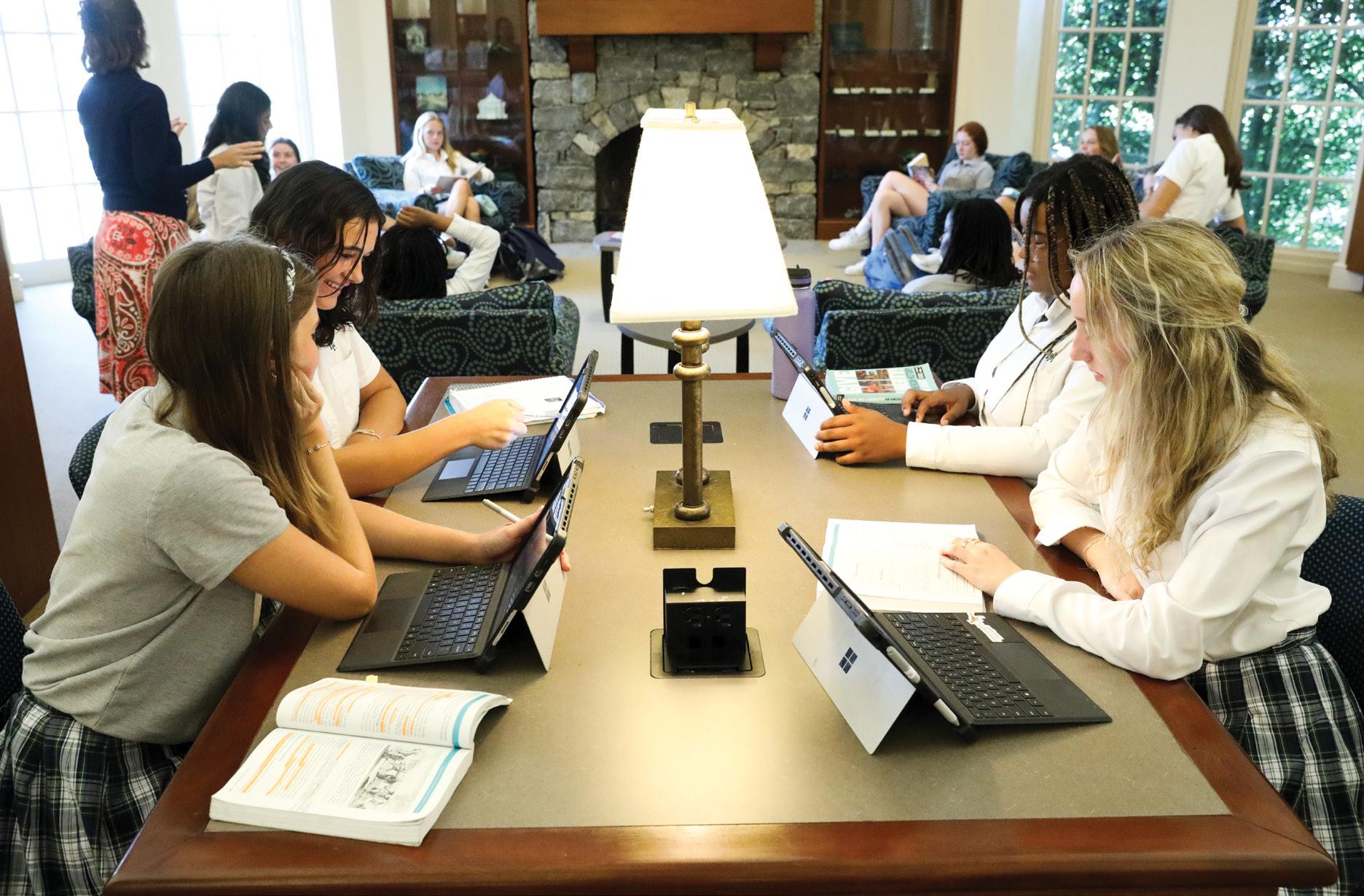
Harpeth Hall’s Center for STEM Education for Girls aims to increase girls’ participation in science, technology, engineering, and math studies and to encourage girls to aspire to STEM careers. Through the work of the center, Harpeth Hall envisions a world without a gender gap in STEM. The center equips the next generation of female STEM thinkers and doers by providing leadership, expertise, advocacy, and innovation in STEM education for girls.
In addition to Harpeth Hall’s yearlong Honors STEM Research class, students may pursue STEM research in laboratories, both locally and throughout the nation, during Winterim or over the summer. Girls become fully integrated members of research teams.
Harpeth Hall founded its premier research-based STEM program, the STEM Summer Institute, in 2011. Each summer, the program brings together rising 7th through 12th grade girls from the greater Nashville area to solve real-world problems as they create, build, and test their own prototype solutions. Imagine finding a way to create and supply hand-washing stations to communities in need or designing a better birthing bed to help with safer infant deliveries for women in Kenya. Students who participate in the STEM Summer Institute conduct their own research and visit local labs to speak with and learn from a diverse group of women in STEM. Students then engage in the hands-on work of designing and constructing their own solutions to global and local challenges. At the end of camp, students present their research projects to a team of STEM professionals in a true integration of science, technology, engineering, and mathematics.

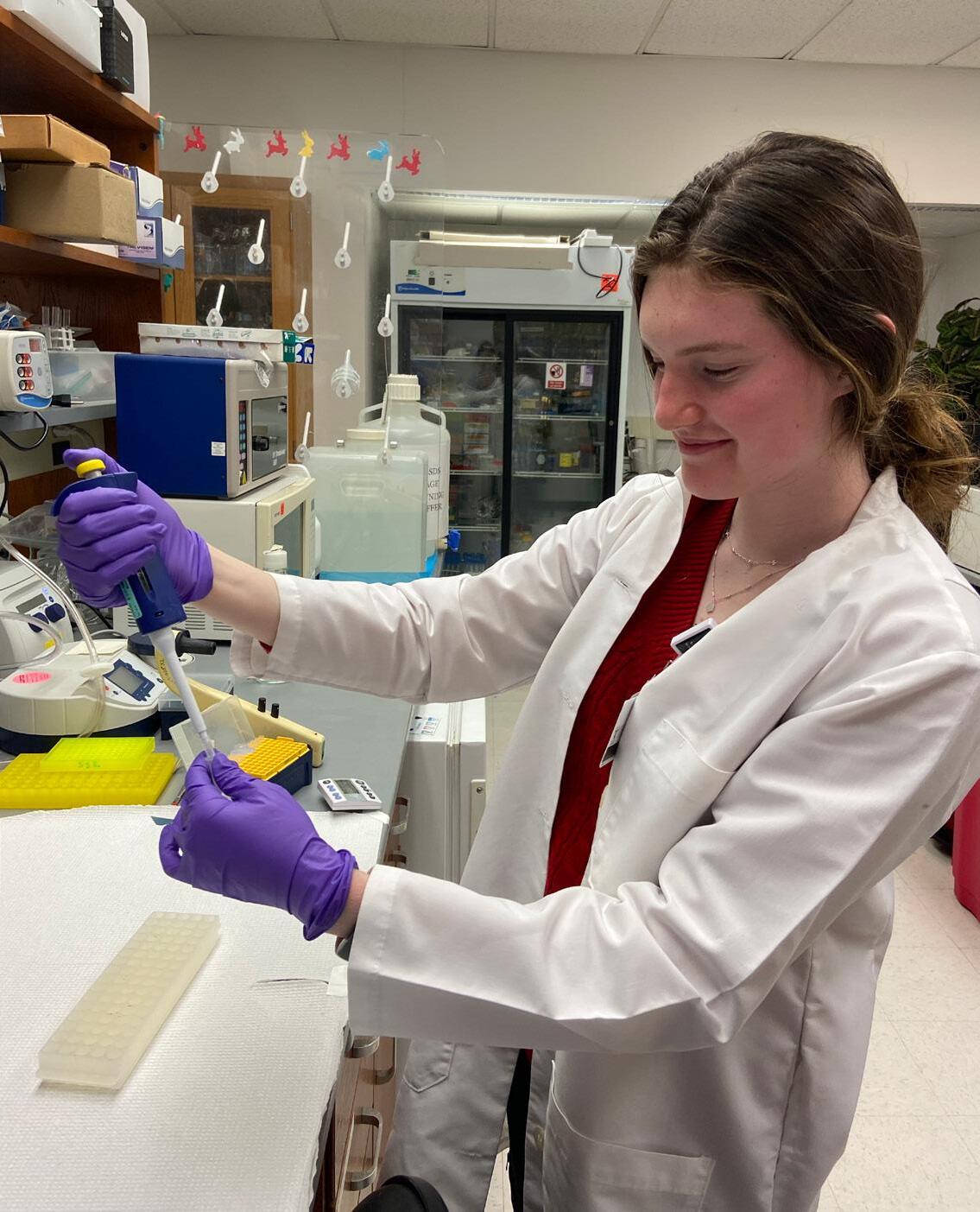
Upper school students who apply and are selected for Global Scholars gain a deeper and broader knowledge of the world by taking additional global-based courses, joining regular small-group discussions, participating in global-centered Public Purpose initiatives and clubs, exploring globally focused programs and events in the Nashville community, and completing a capstone project. Beginning in the 10th grade, Global Scholars explore global issues through student-directed conversations, written reflections, and dialogue with experts. In 12th grade, students complete a capstone project in an area of specific interest and present their findings to an upper school audience. The Global Scholars program challenges upper school students to become responsible global citizens by encouraging cross-cultural connections, developing interdisciplinary modes of thinking, and building empathy.
Students enrolled in the Global Scholars program will be encouraged to:
• Go beyond the familiar
• Develop leadership skills
• Become effective, responsible global citizens
• Make cross-cultural connections
• Combine disciplines and ways of thinking
• Develop empathy
• Learn to create change
• Understand and act meaningfully in the world
• Explore globally focused events and experiences in Nashville and beyond
Global Scholars students are encouraged to enroll in the following Global Scholars electives:
• AP Environmental Science
• AP Statistics / Statistics
• Intro to Computer Science
• Intro to Engineering (semester)
• Any fourth year of language or additional language
• AP Art History
• AP European History
• Economics (semester)
• Religions of the World (semester)
• History of American Cinema (semester)
• Democracy and Leadership (semester)
Harpeth Hall offers an international exchange program for upper school students with schools in Germany, Guatemala, New Zealand, and South Africa. This cross-cultural interaction provides our students with awareness, understanding, and appreciation of others and how they live. Students live with host families, attend partner schools, and host young women from these countries in return. The international exchange program application process occurs each year from September through October.
Hastings, New Zealand: Woodford House
As one of the largest boarding schools in New Zealand, Woodford House offers a home to excellence for both boarding and day students. Located in Hawke’s Bay, Woodford House provides every girl with an exceptional education and endless opportunities, allowing her to flourish and achieve her personal best. One to two students from Woodford House attend Winterim classes at Harpeth Hall; Harpeth Hall students travel to New Zealand for three to four weeks the following summer.
Guatemala City, Guatemala: Faces & Our Cultures, a consortium of multilingual schools
Faces & Our Cultures is a highly selective student program committed to enriching cultural experiences. This exchange program aims to empower participants’ future through cultural and personal development. This growth is nurtured within an educational environment while promoting global understanding. Students from the Faces & Our Cultures program attend Harpeth Hall in the fall semester, and then Harpeth Hall students visit Guatemala the following summer.
Johannesburg, South Africa: St. Stithians Girls’ College
St. Stithians Girls’ College is one of South Africa’s leading girls schools. Within the Girls’ College, they strive to produce confident young women who can lead a life of conviction and purpose. Established in 2000, this exchange program provides for one to two Harpeth Hall students each year to spend four to five weeks in Johannesburg during the summer and for their hosts to attend classes at Harpeth Hall for eight weeks from August through October.
Wiesbaden, Germany: Humboldt Schule
The Humboldt Schule is a private, co-educational school for elementary and high school students. The exchange program began in 2006 as a joint program between Harpeth Hall and Montgomery Bell Academy. Four students typically participate in the exchange each year, hosting German students in their homes for three weeks in late spring and then traveling to Wiesbaden for several weeks in the summer.
Ahallmark of Harpeth Hall for more than 50 years, upper school students explore their intellectual horizons through Winterim. This three-week experiential program in January provides students with unforgettable experiences through academic travel, internships, independent studies, and on-campus courses that stretch their perspectives.
Students in 9th and 10th grades enroll in project-oriented courses on campus presented by our faculty and professionals from around the country. These select studies push beyond the bounds of the traditional curriculum and allow students to pursue personal interests and develop new skills through more than 70 challenging, project-oriented classes in four areas: fine arts and fitness, global perspectives, humanities, and STEM.
Students in 11th and 12th grades engage in internships, independent studies, or faculty-led academic travel. These experiences provide opportunities that often inspire the career pursuits of our alumnae.

• Bookbinding 101
• Crime Scene Investigation
• Entrepreneurship 101
• Existentialism
• Marine Science
• Med School 101
• Medical Robotics
• Music Production and Recording
• Willkommen in Deutschland! (Welcome to Germany!)
• Creating an Escape Game
• Making Bank: The History of Money
• The Mathematician as Artist
• Getting Real About Real Estate
• A Trip to Stars Hollow
• $ents and Sensibility
• The French Revolution: Live!
• Changing the World, One Diaper at a Time
• Impariamo l’italiano! Basic Italian Language
• Introduction To Ancient Greek
• Ukraine: An Introduction
• What About Dao 道 and Taiji 太極
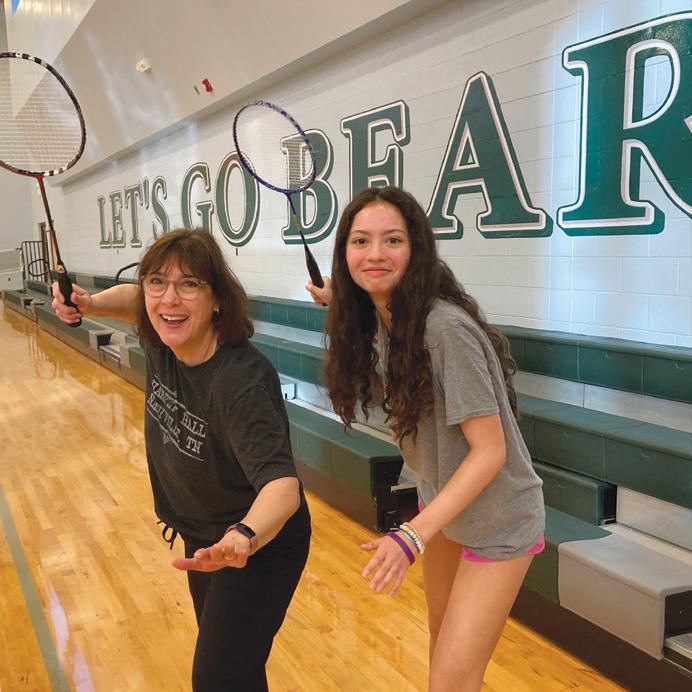



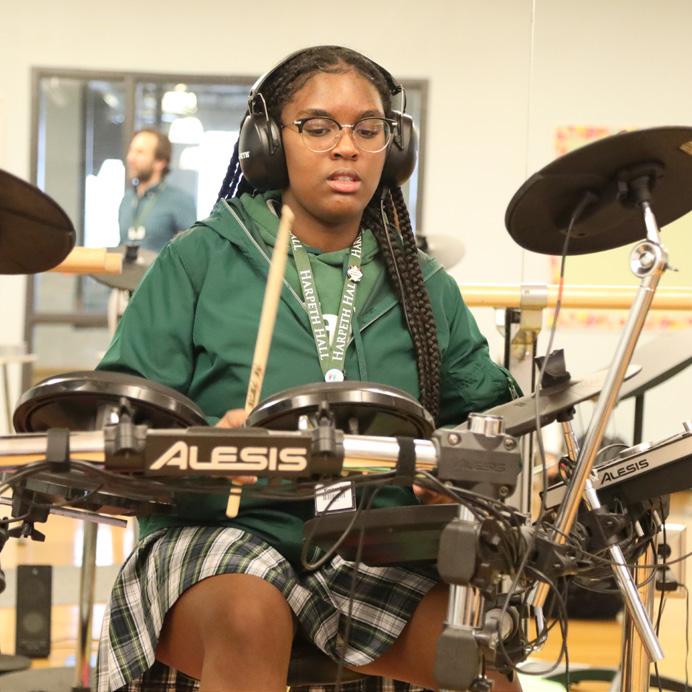
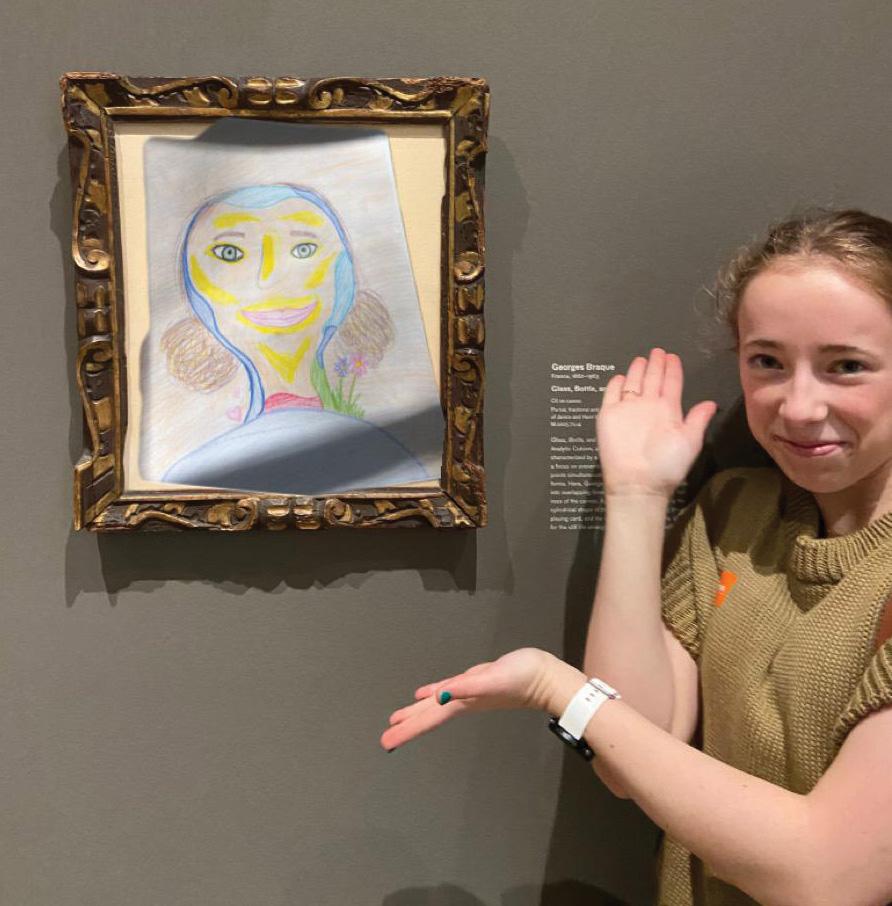
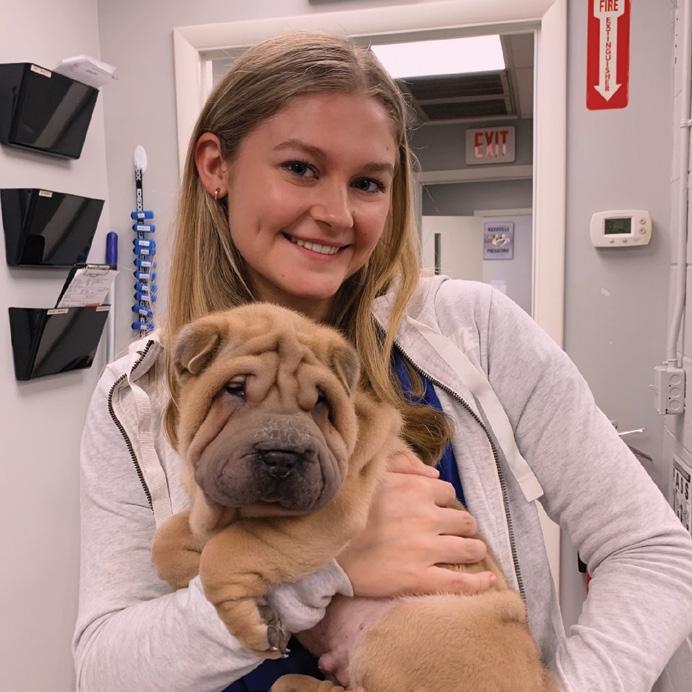
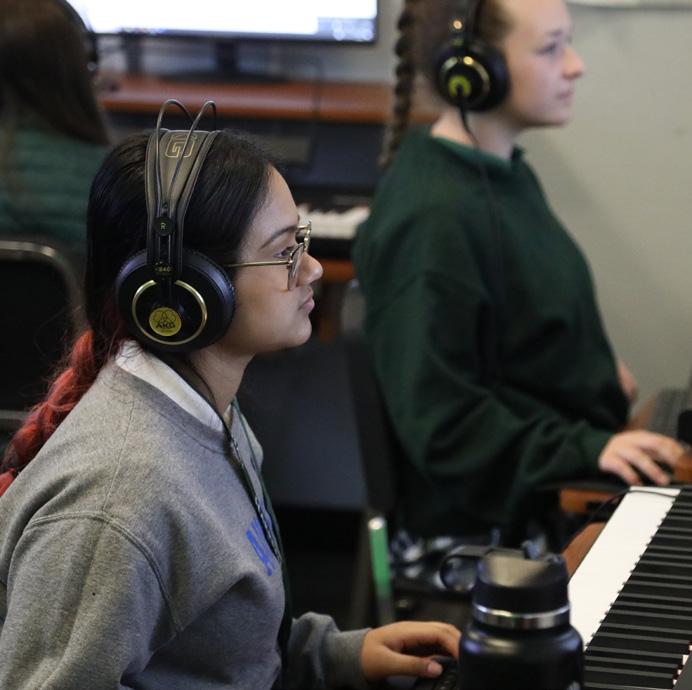

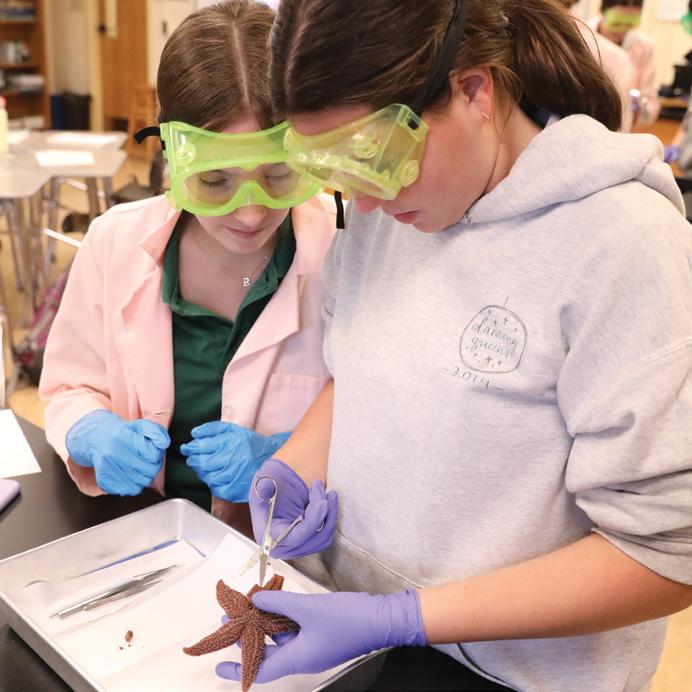
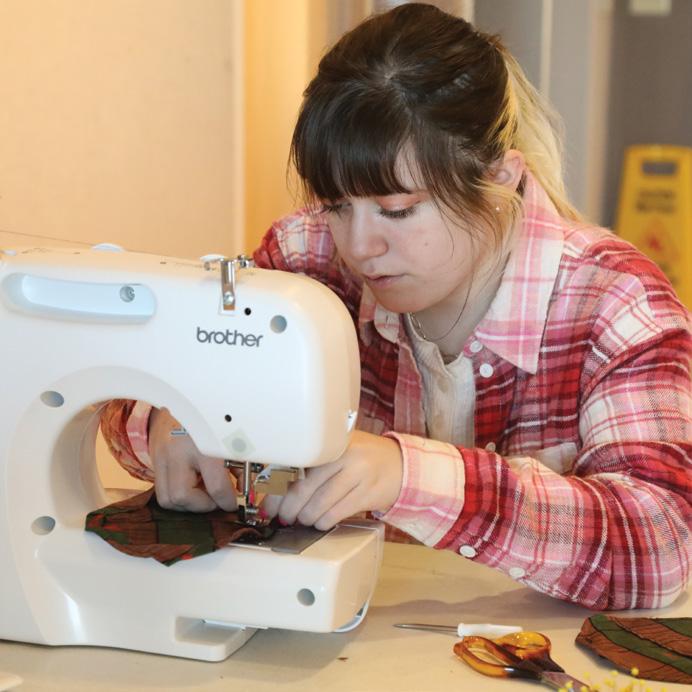
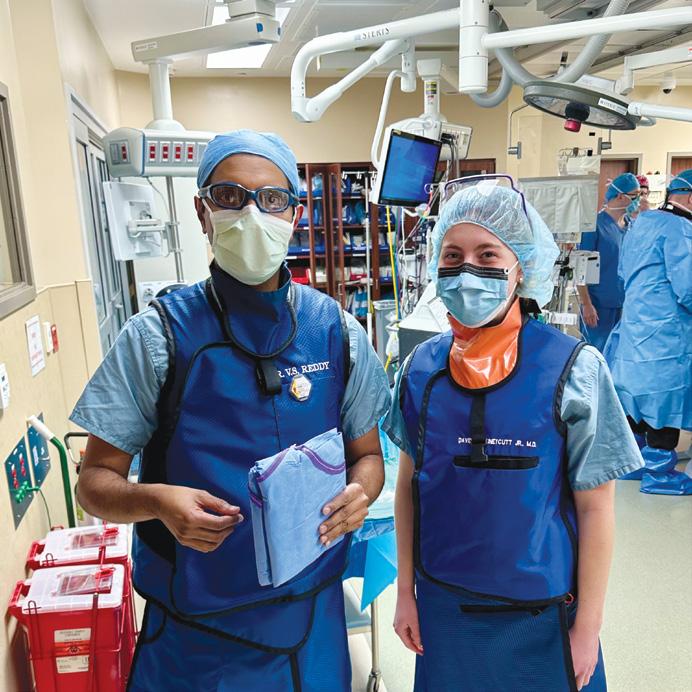
● BMI (New York, NY)
● National Park Service (Washington, D.C.)
● Knopf Doubleday Publishing Group (New York, NY)
● NASA Goddard Communications (Washington, D.C.)
● Capitol Hill Senators and Congressmen (Washington, D.C.)
● Tibi (New York, NY)
● Tennessee Environmental Council (Nashville, TN)
● Think Tennessee (Nashville, TN)
● Saddle Up (Nashville, TN)
● Nashville Artist Collective (Nashville, TN)
● Friends of Warner Park (Nashville, TN)
● Frist Art Museum (Nashville, TN)
● Tennessee Orthopedic Alliance (Nashville, TN)
● Saint Thomas Medical Center (Nashville, TN)
● Vanderbilt University Medical Center (Nashville, TN)
● Nashville Predators (Nashville, TN)
● Hatch Show Print (Nashville, TN)
Recent Independent Studies
Topics: Photography, painting, poetry, music composition, dance, film, poetry, fly fishing, music production, and more
Locations: Nashville, Charleston, Cleveland, Huntsville, Jackson, Los Angeles, Memphis, New Orleans, New York City, Washington, D.C., Australia, Britain, England, France, Japan, Spain, Uganda, and more

